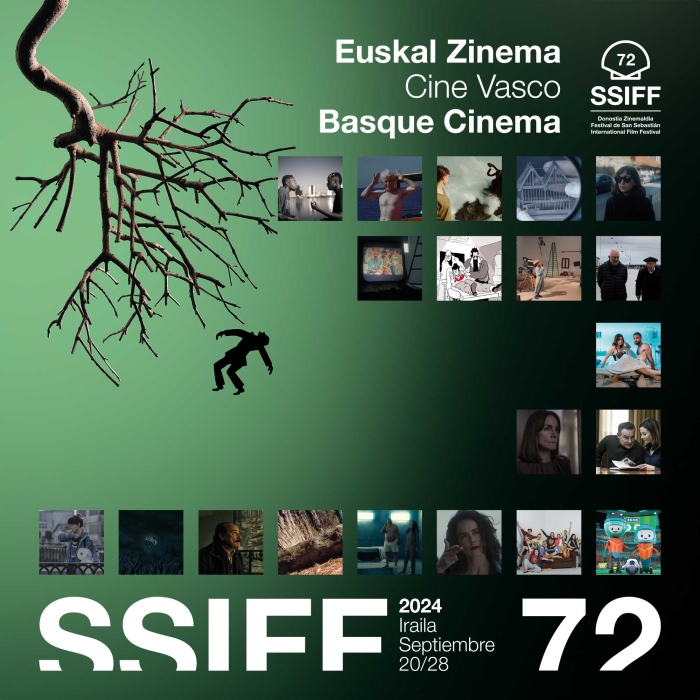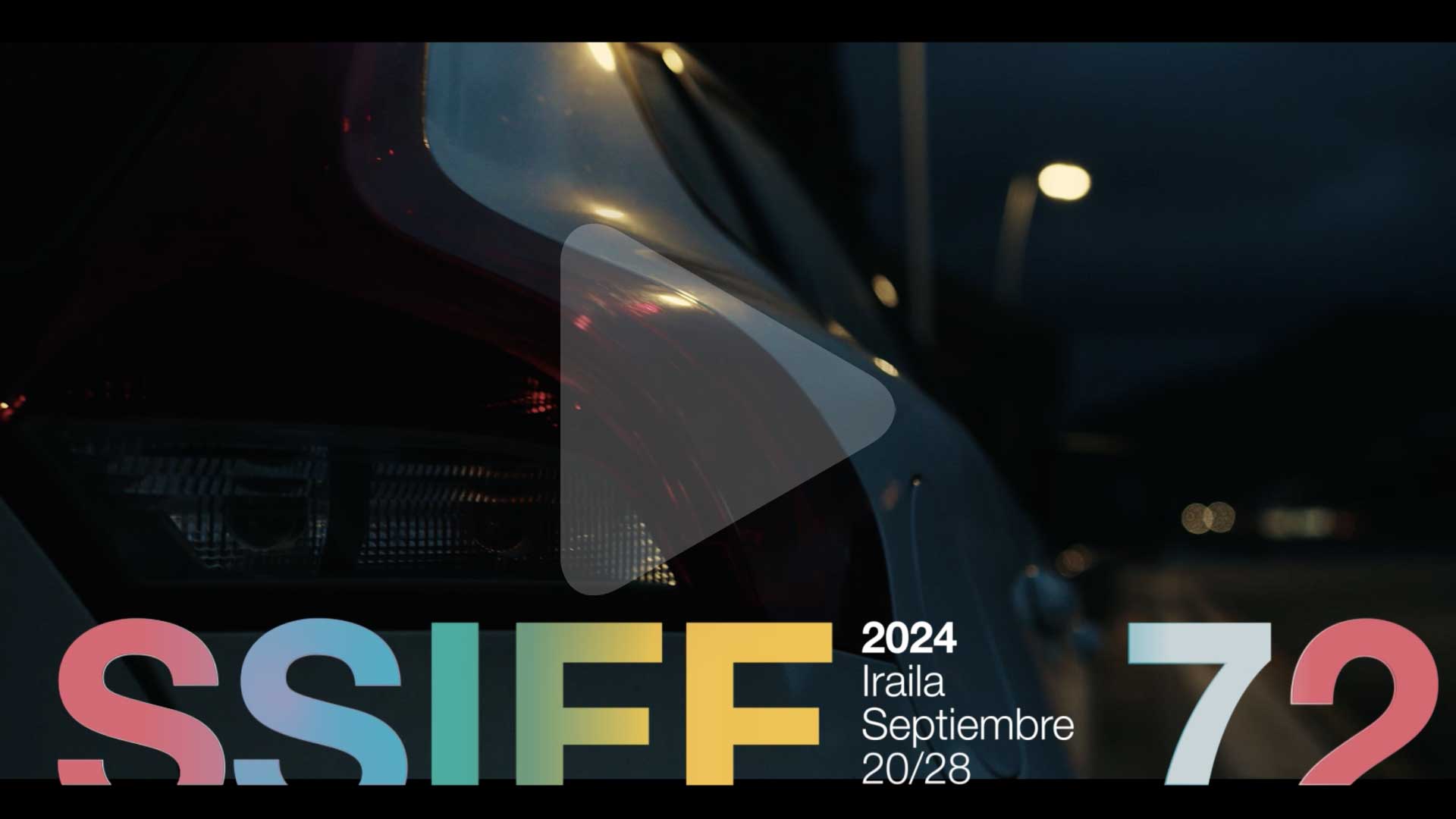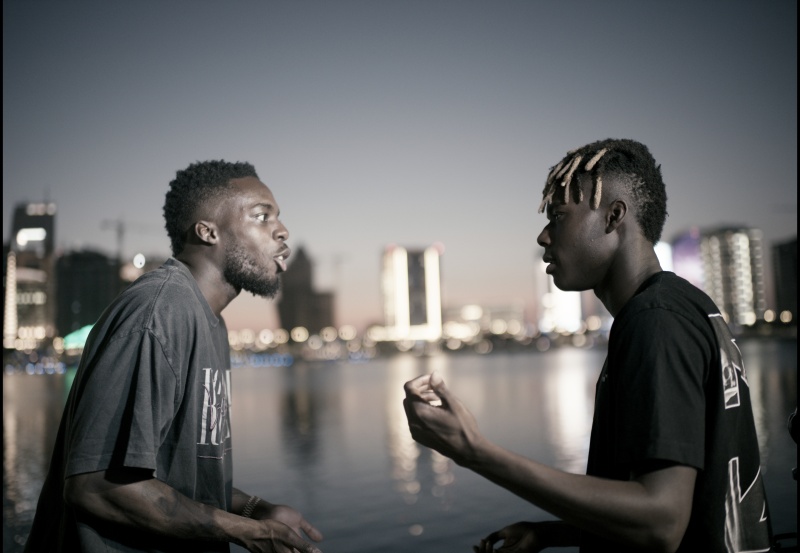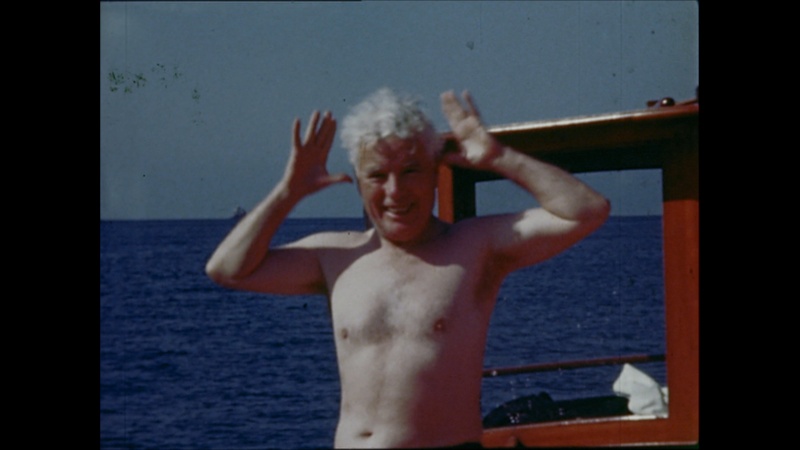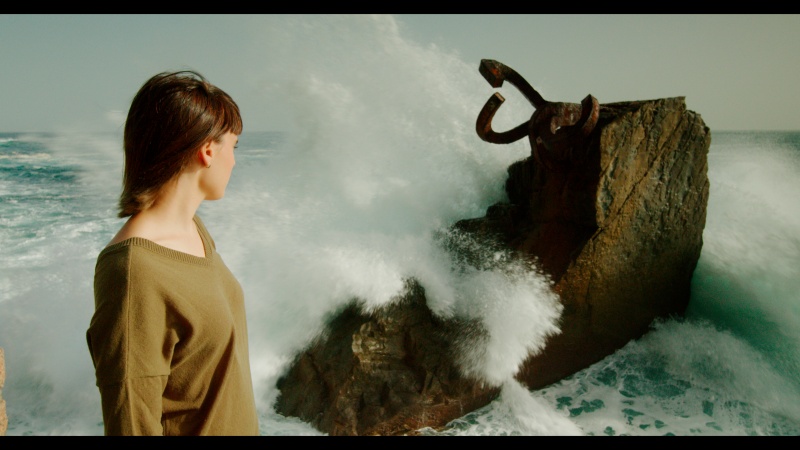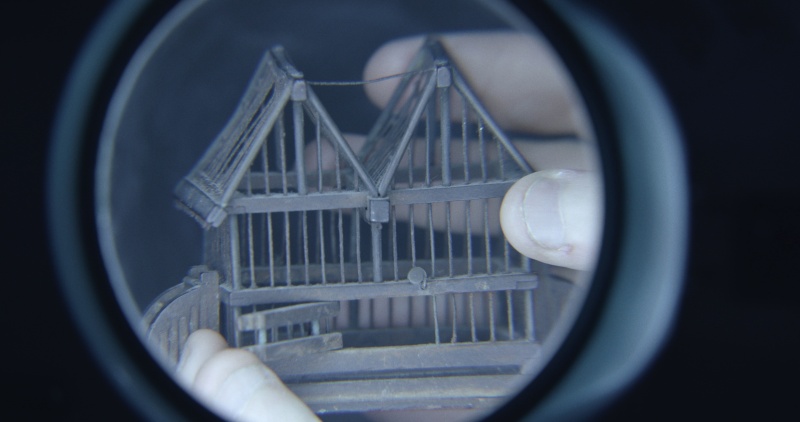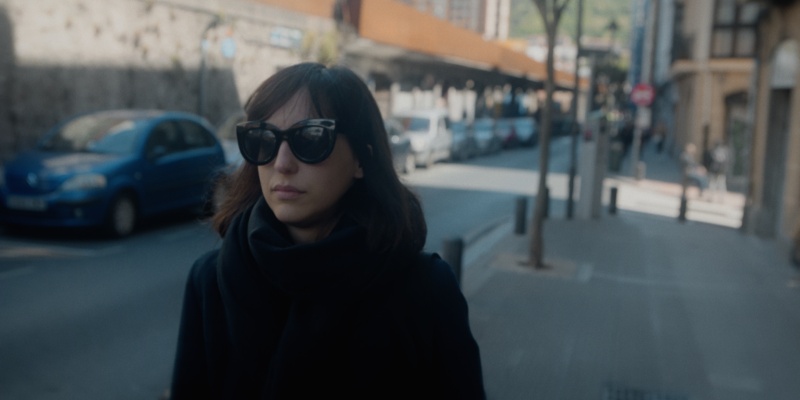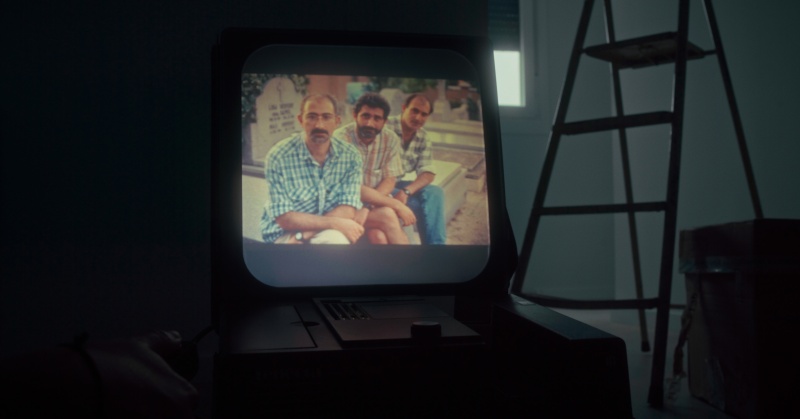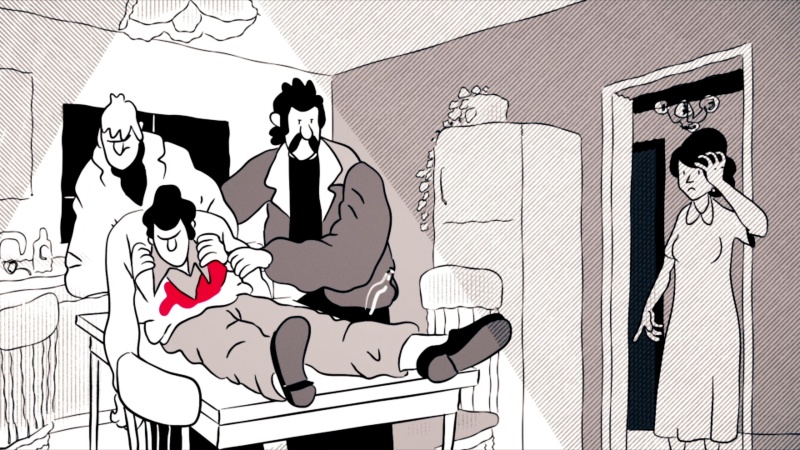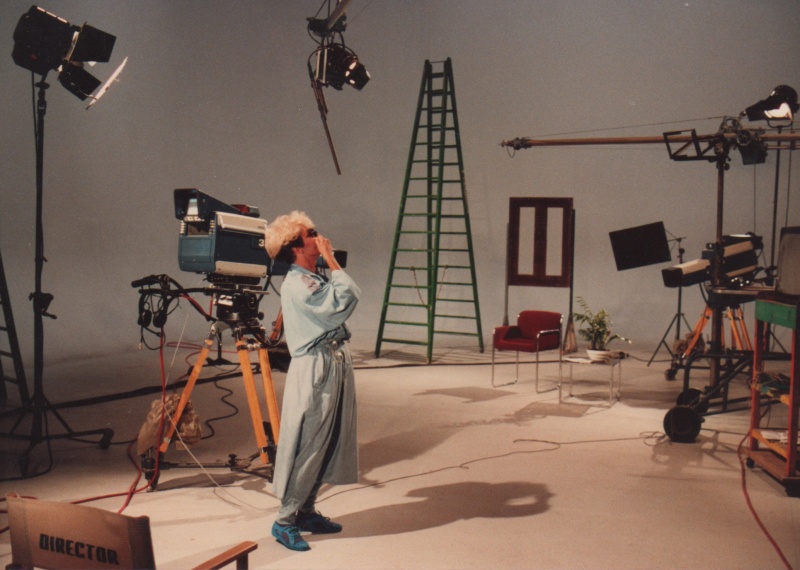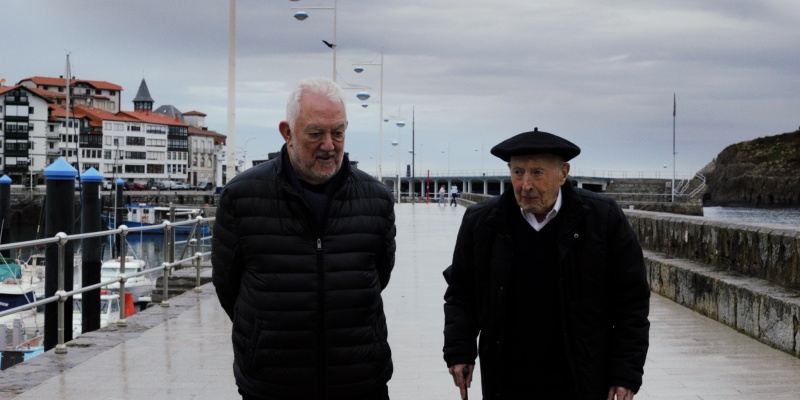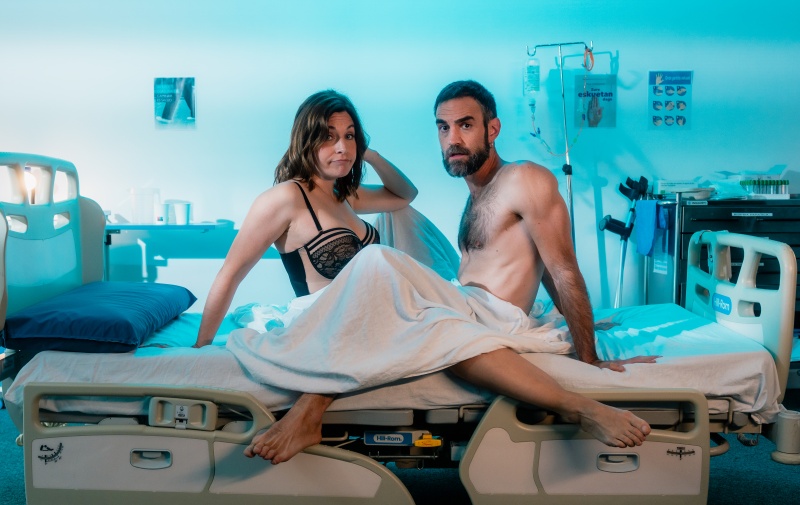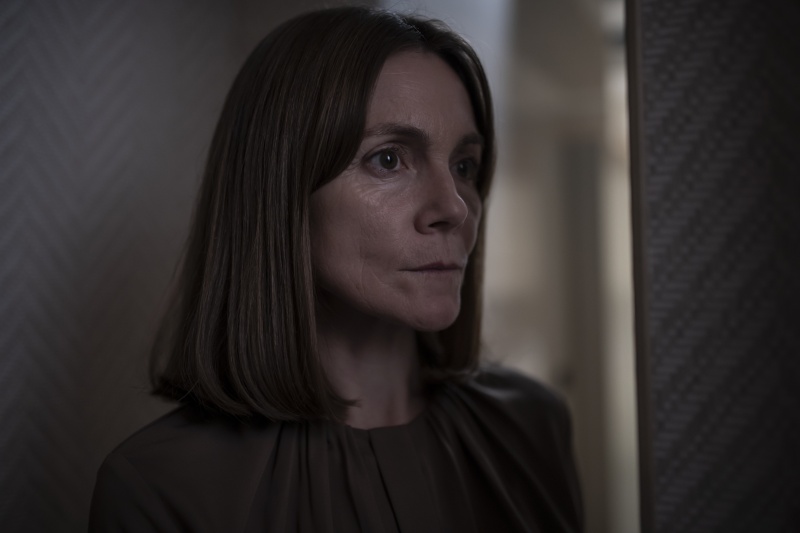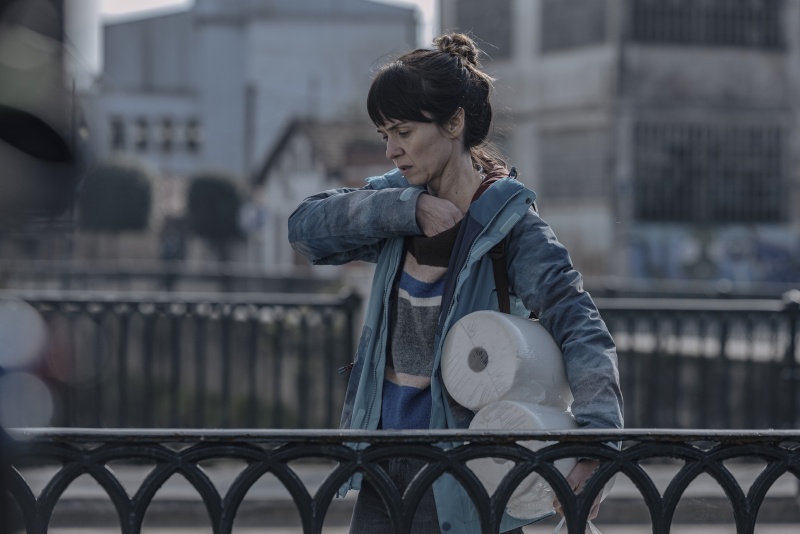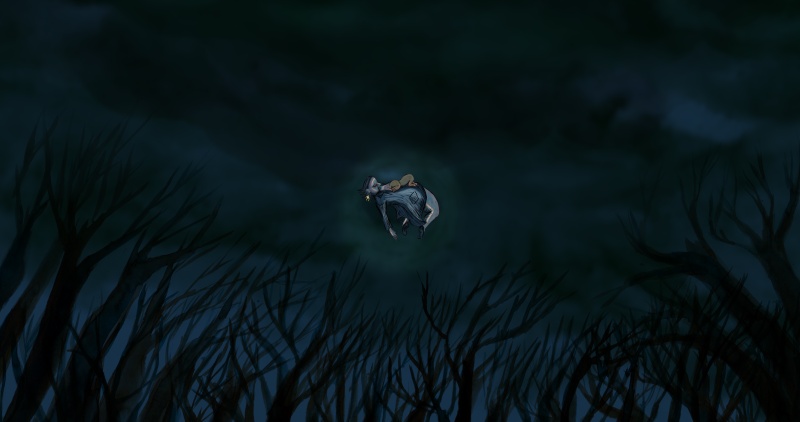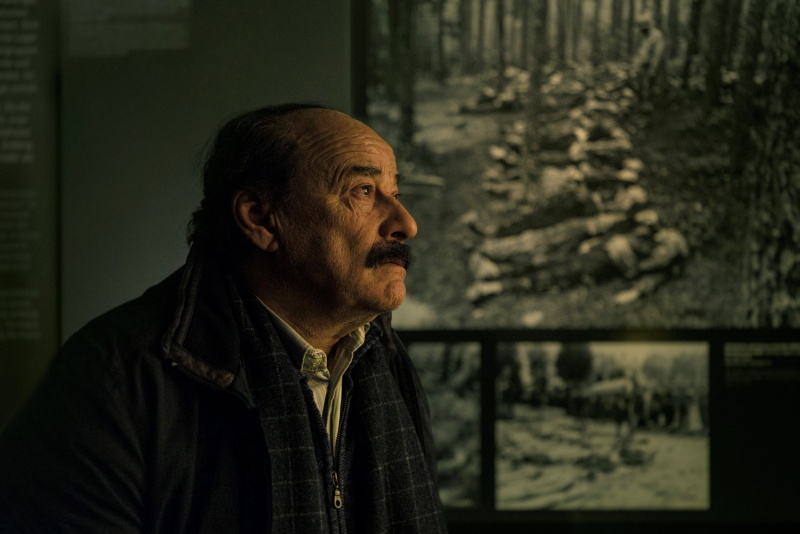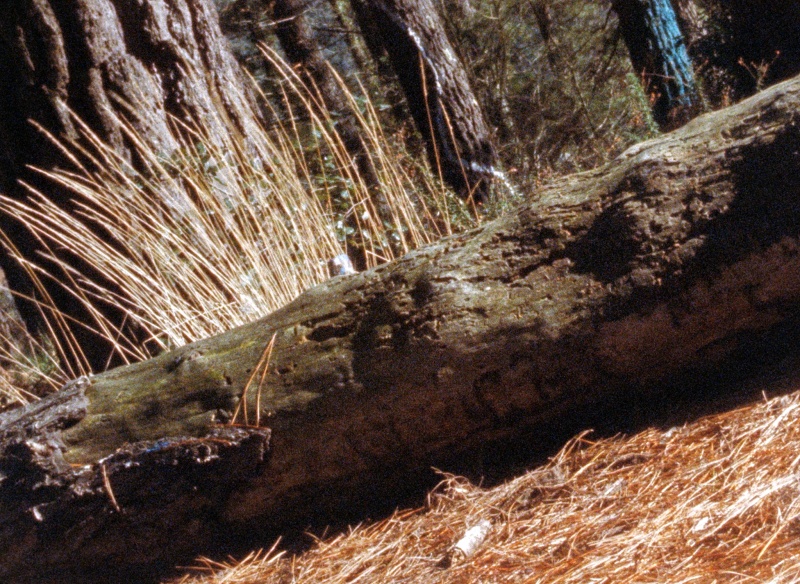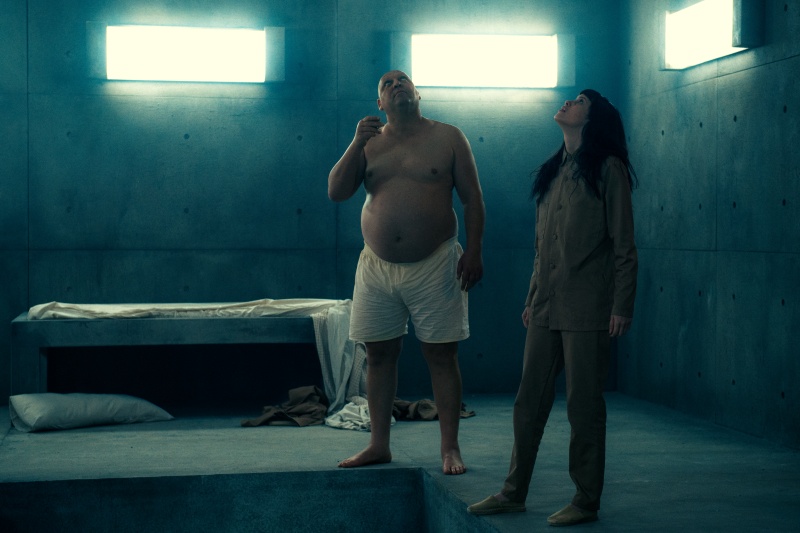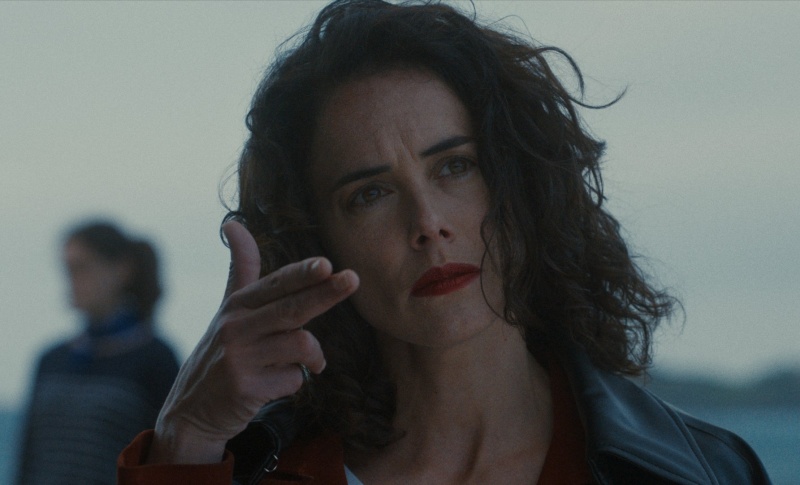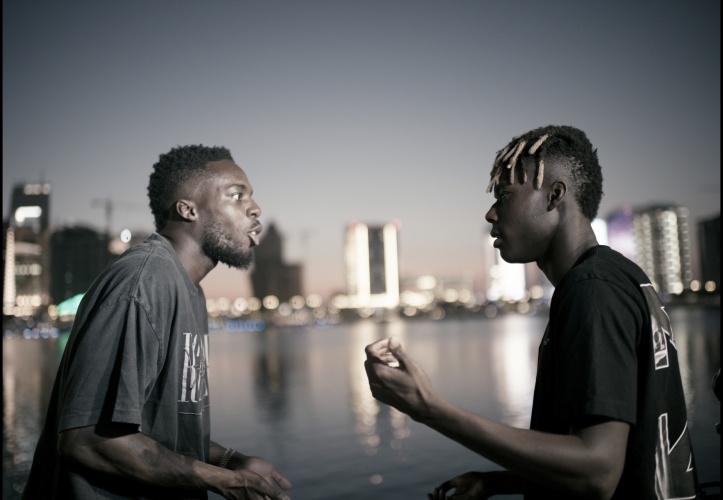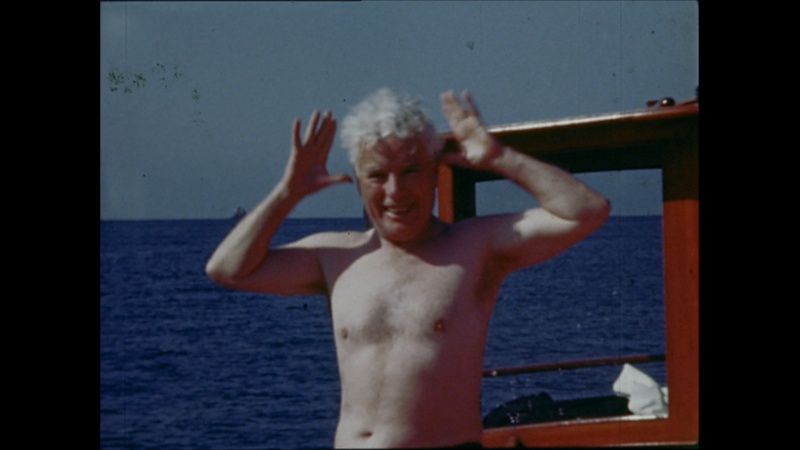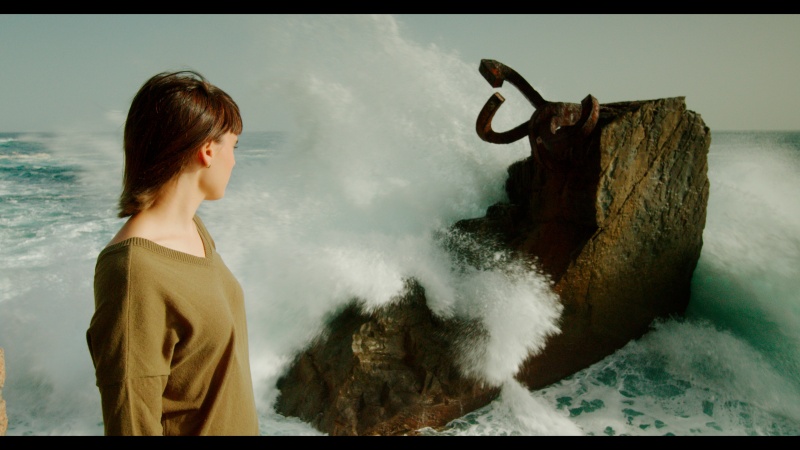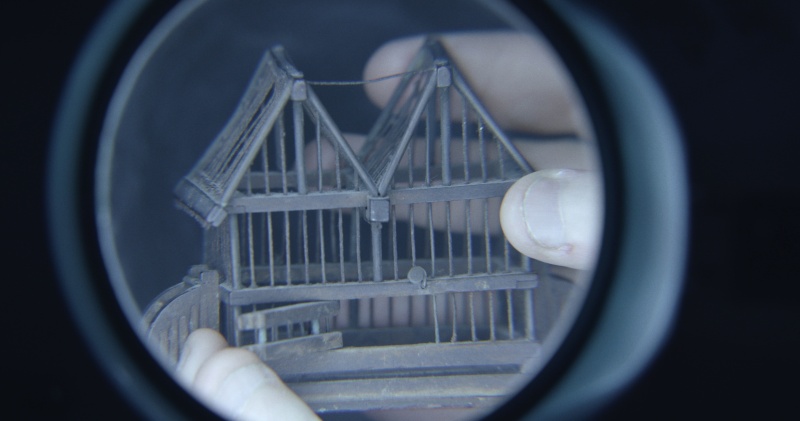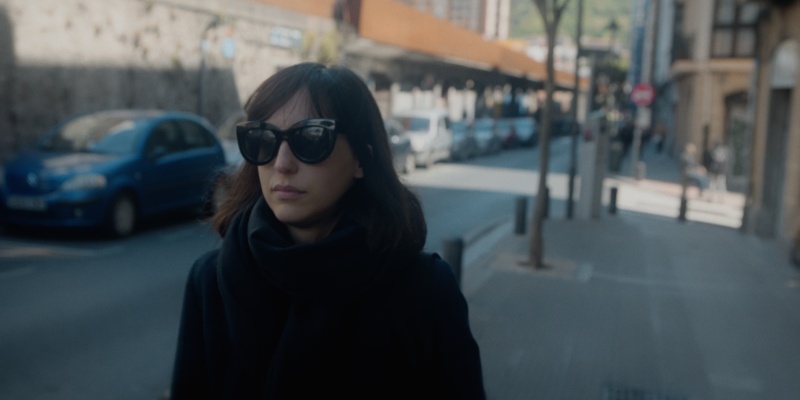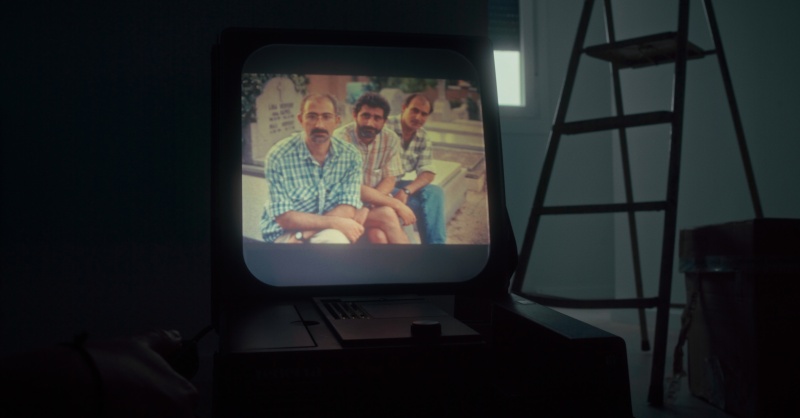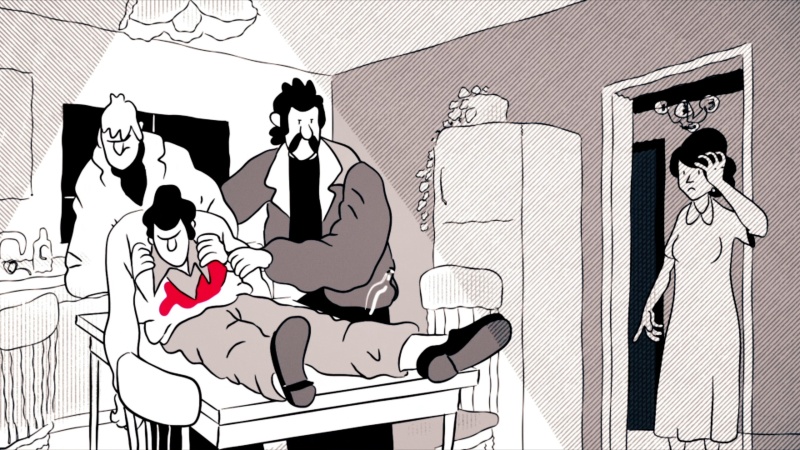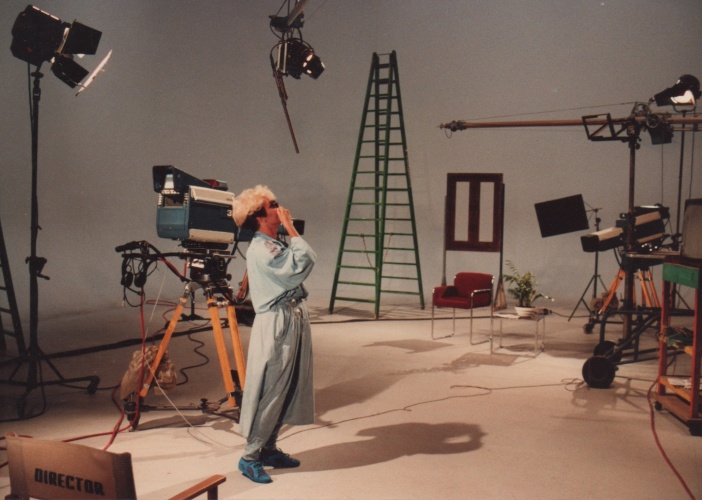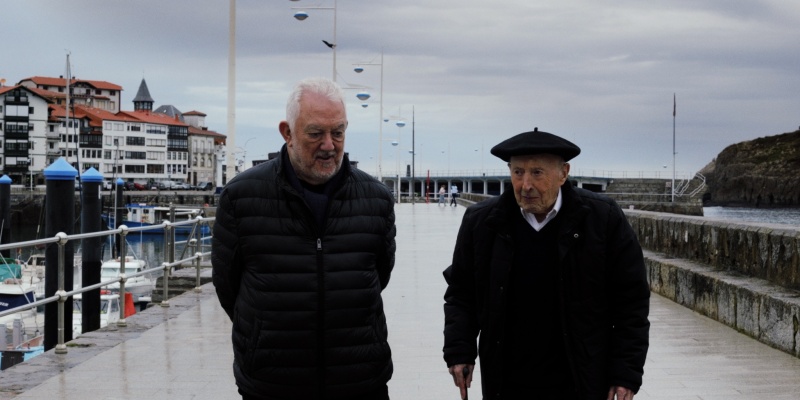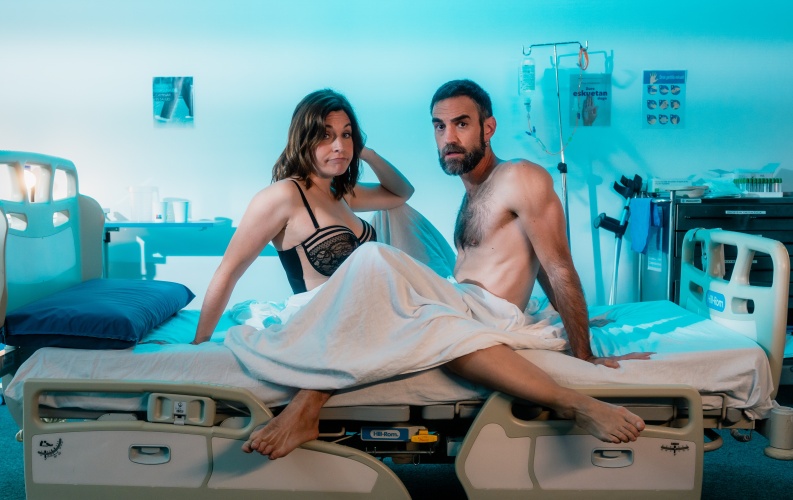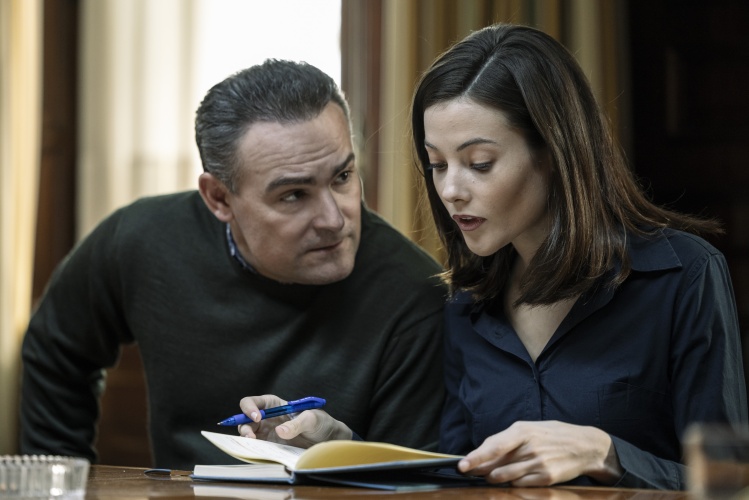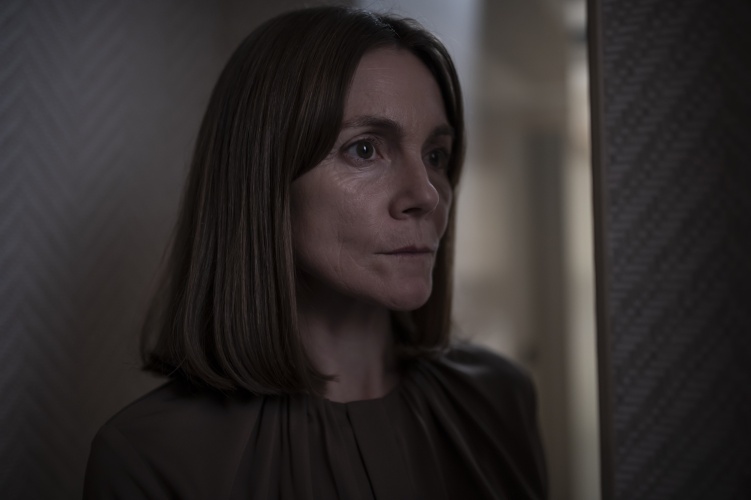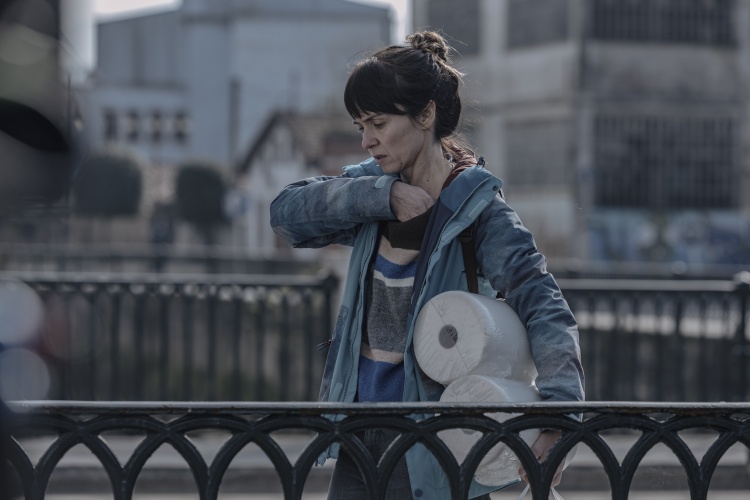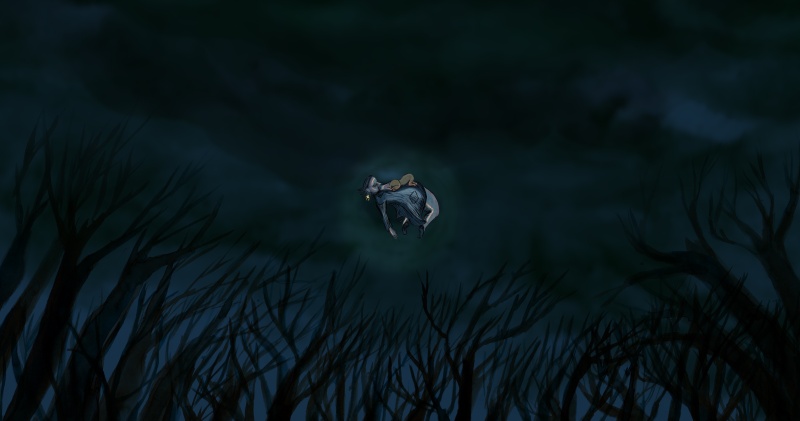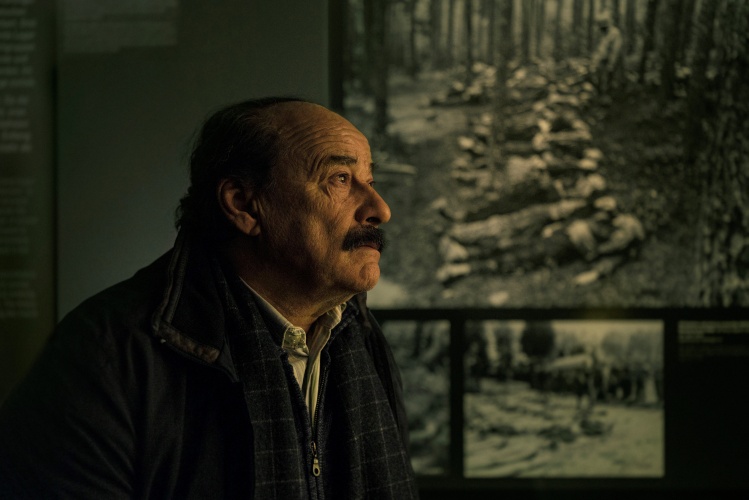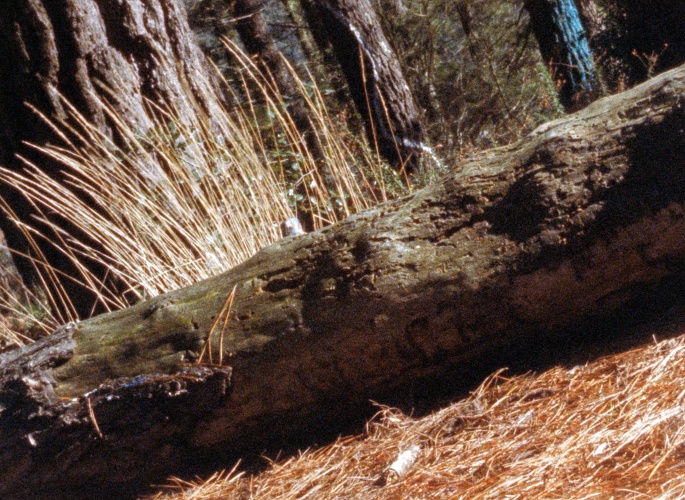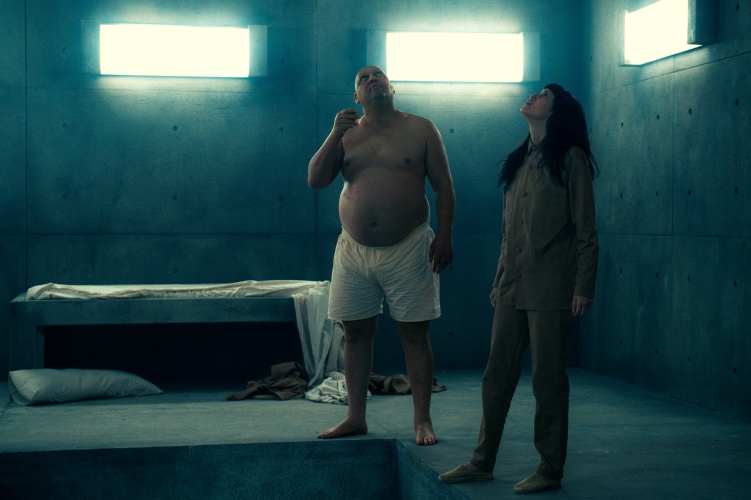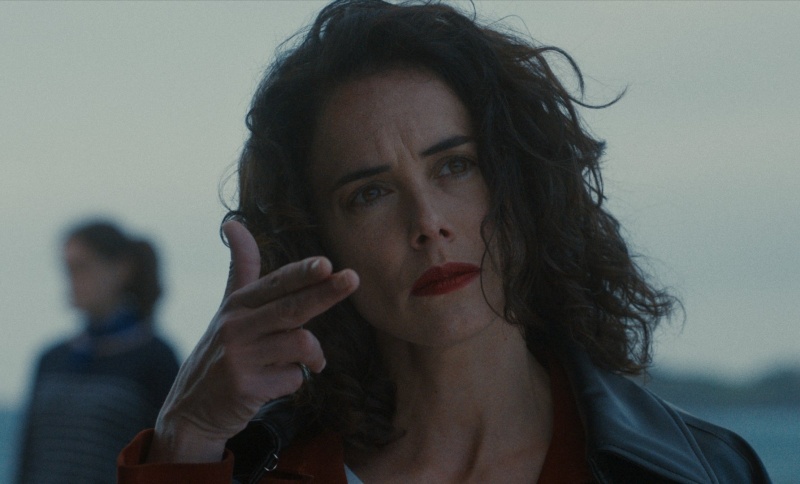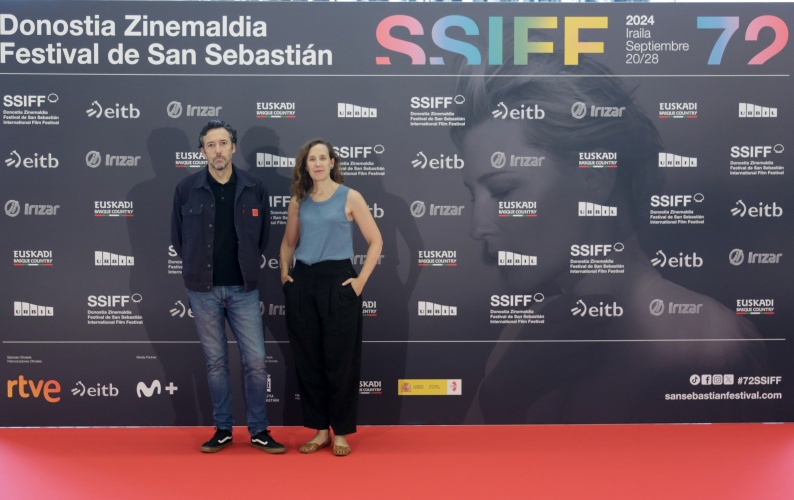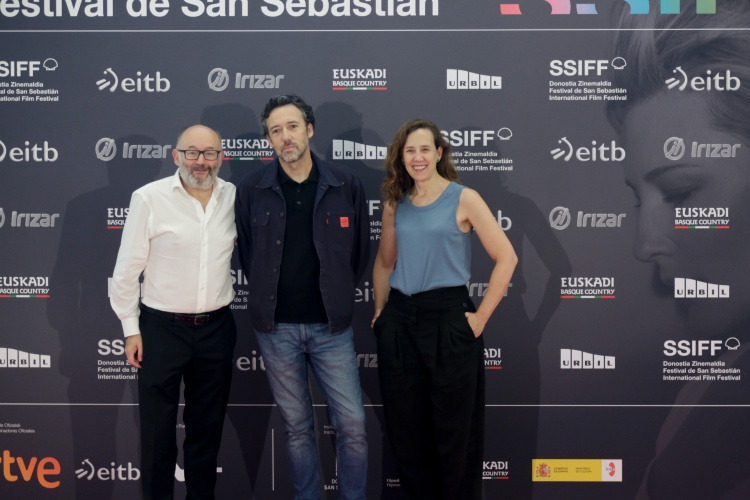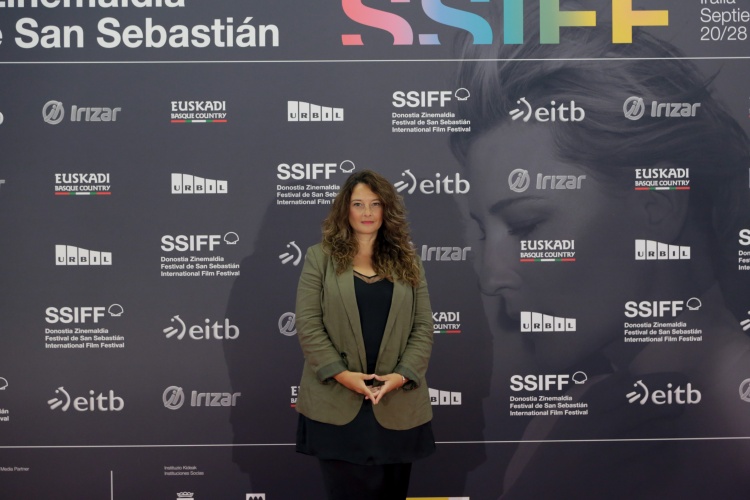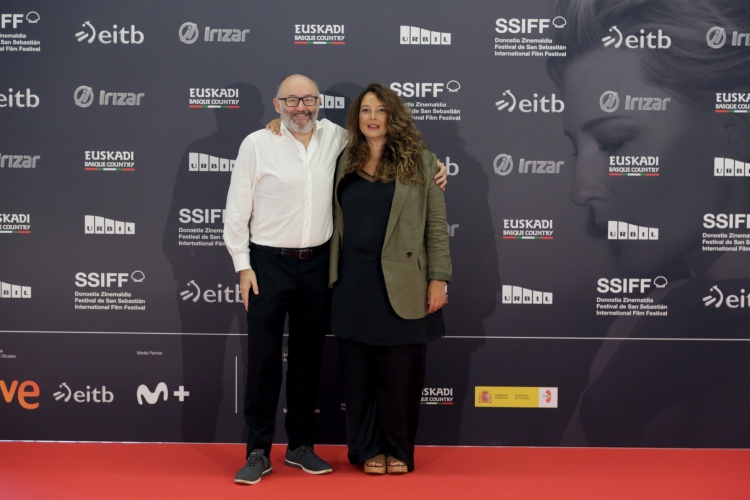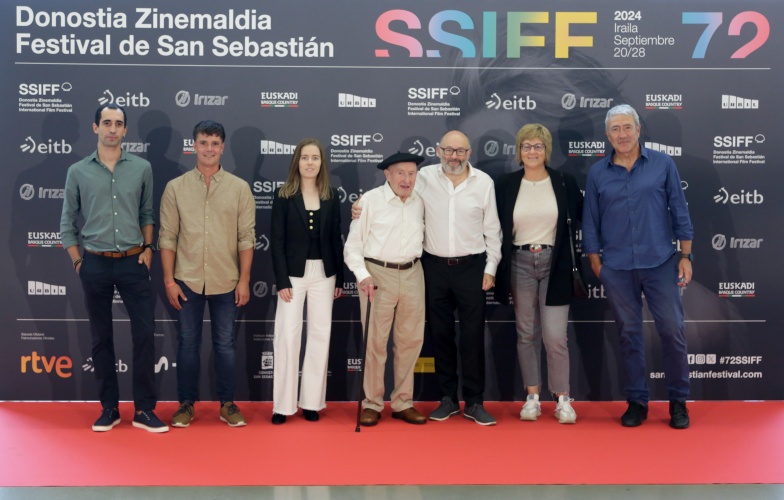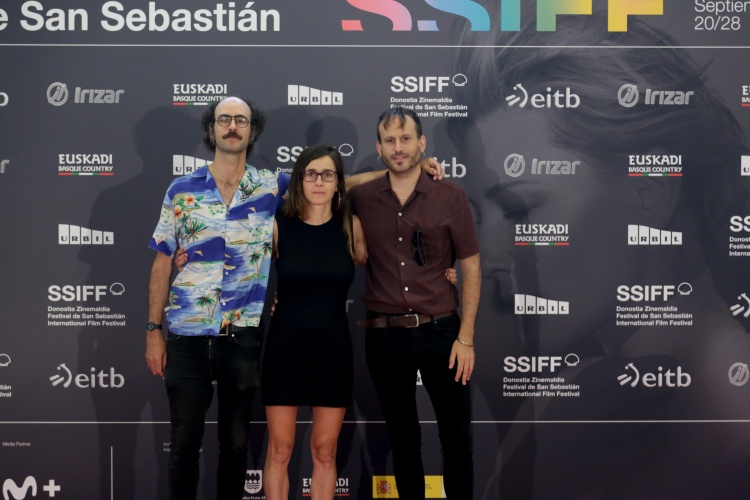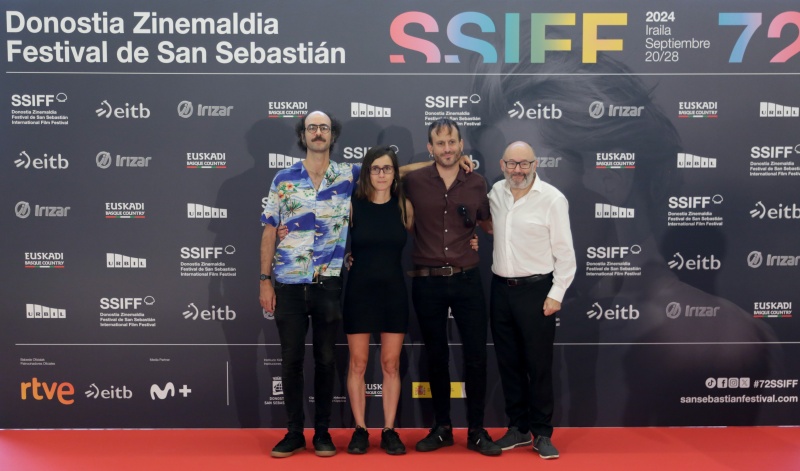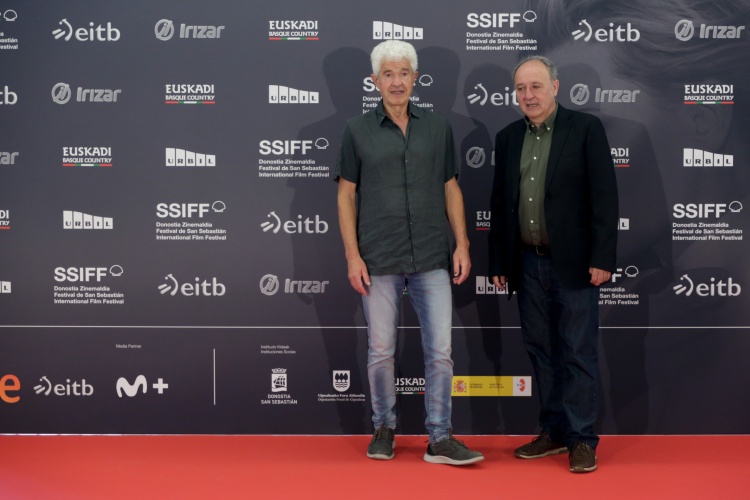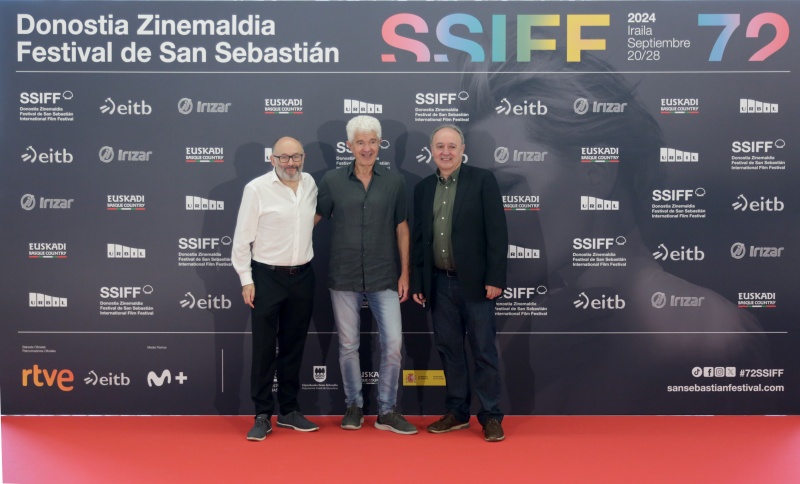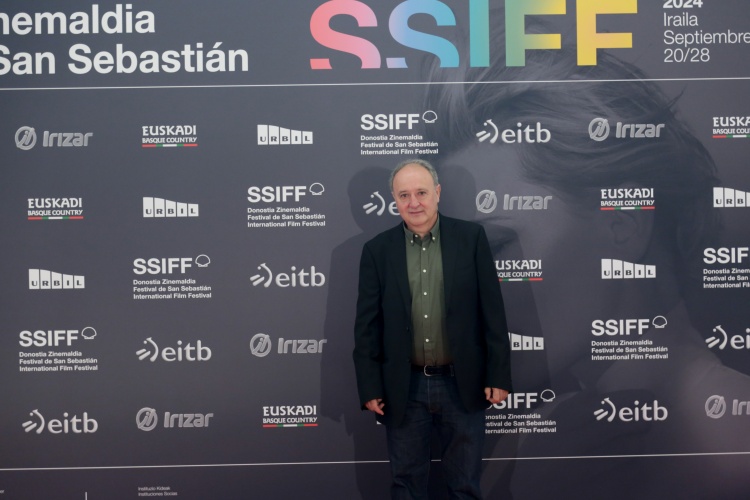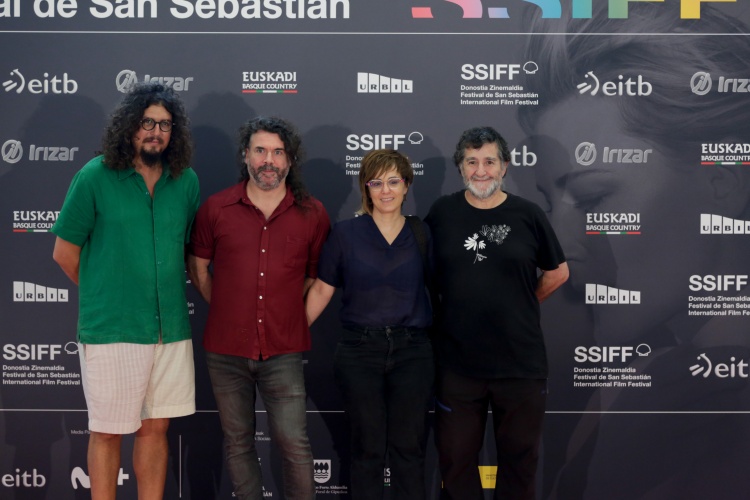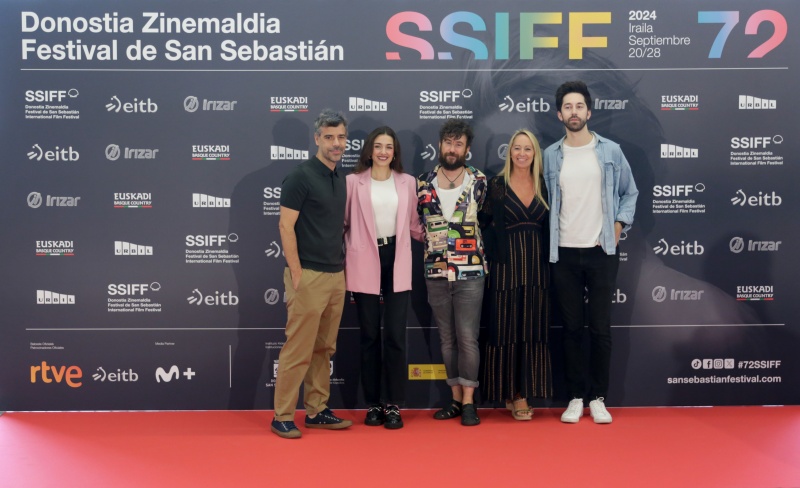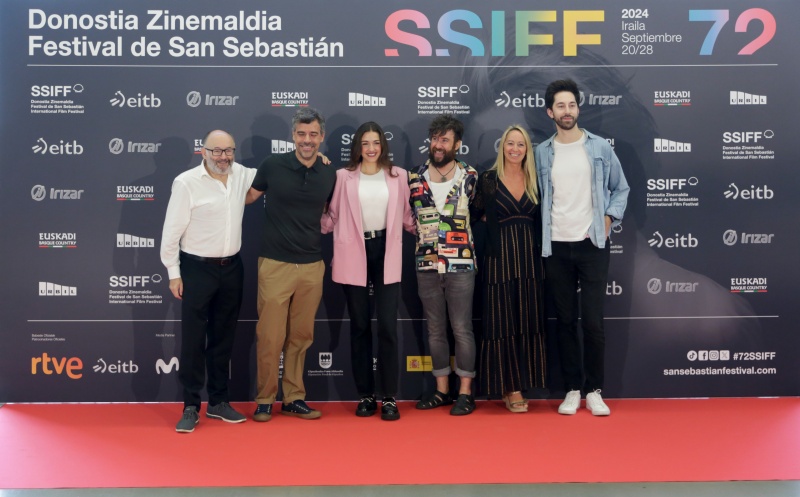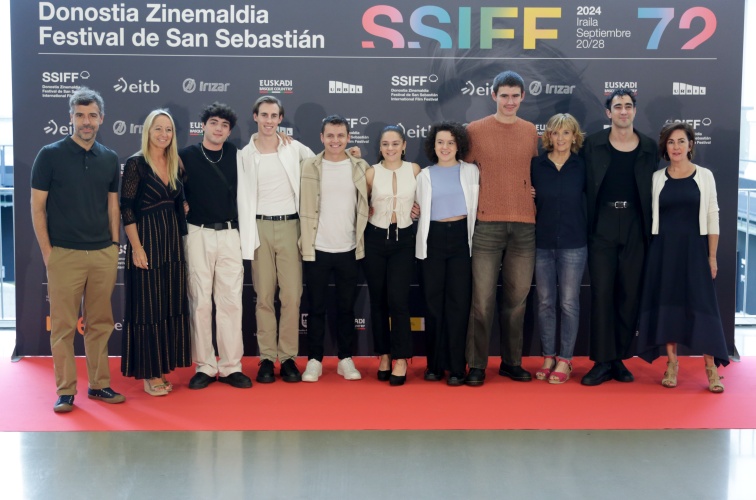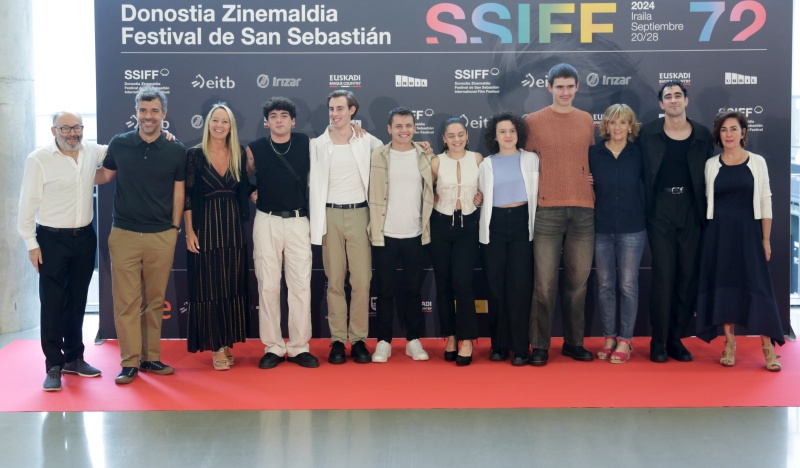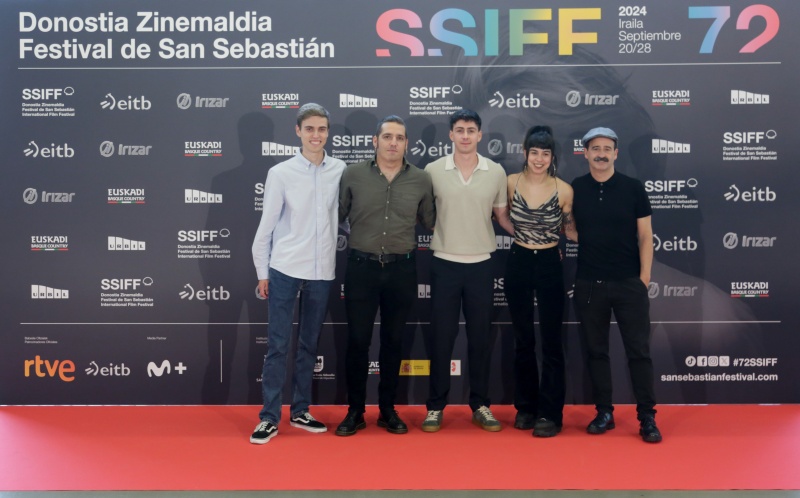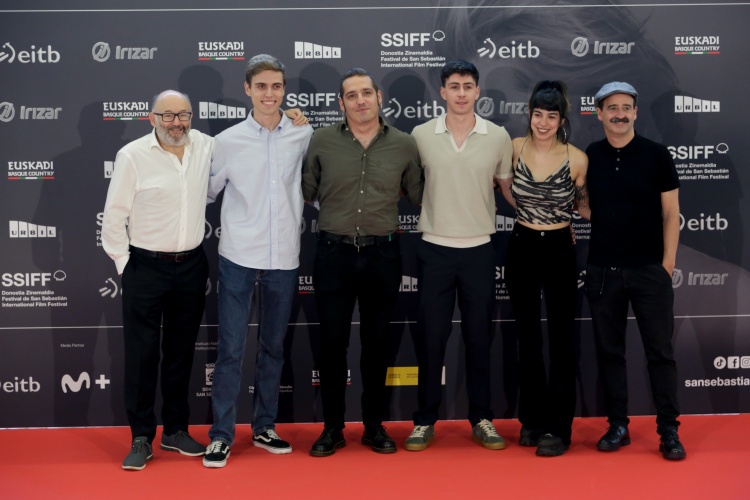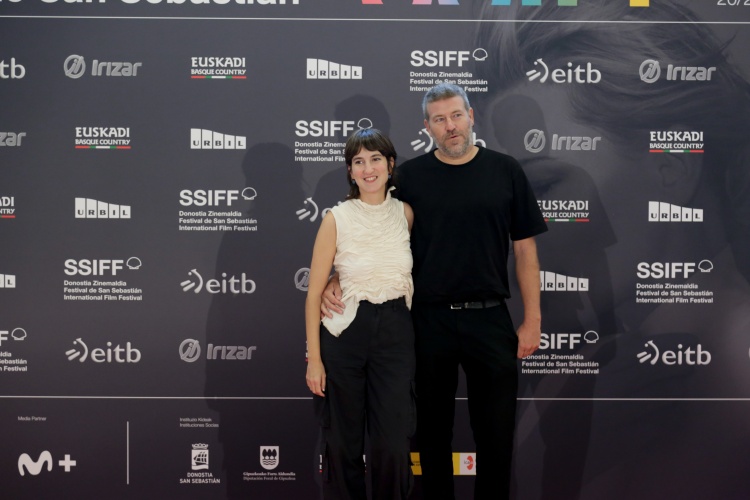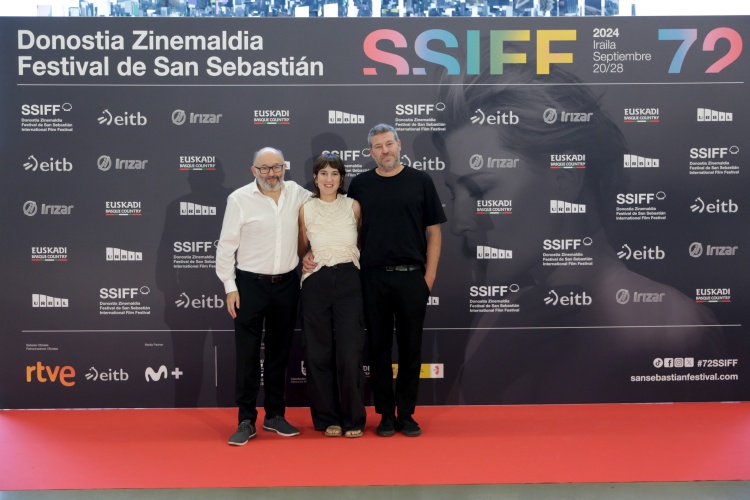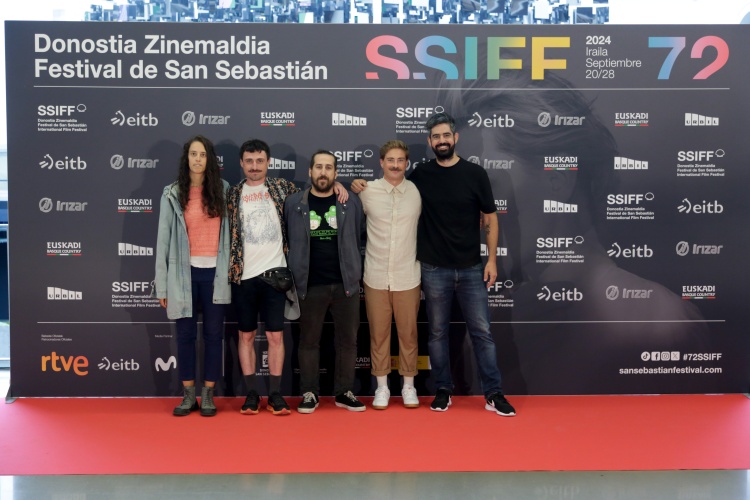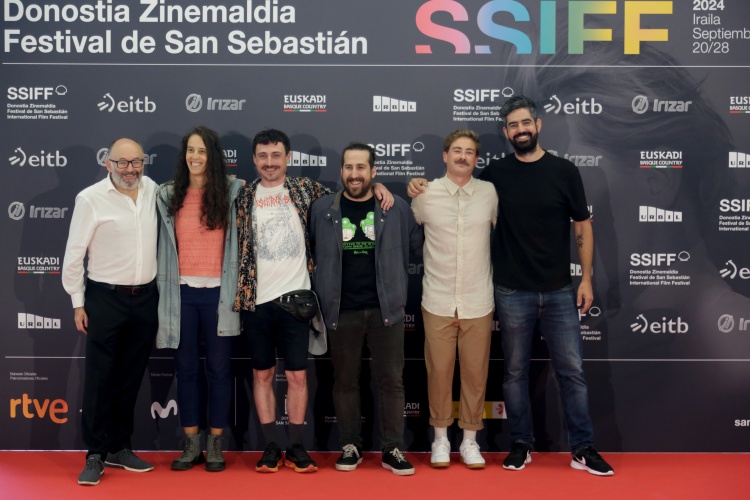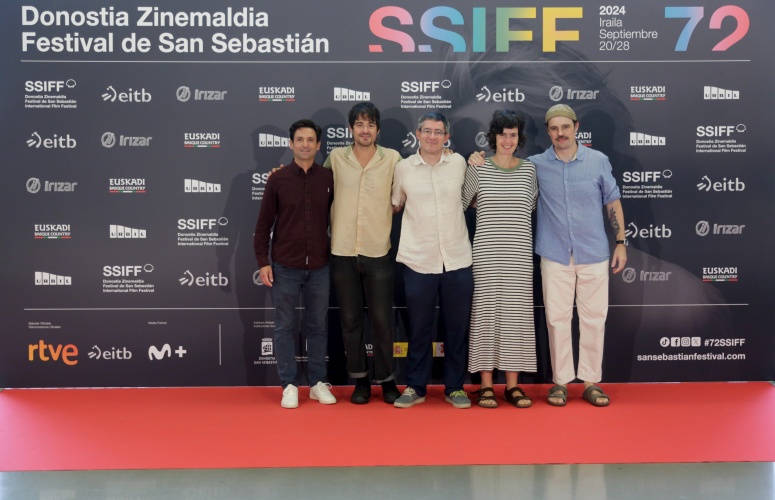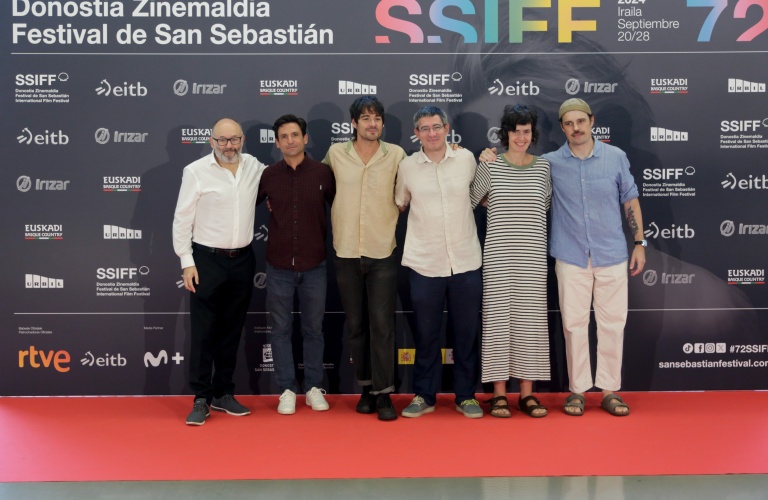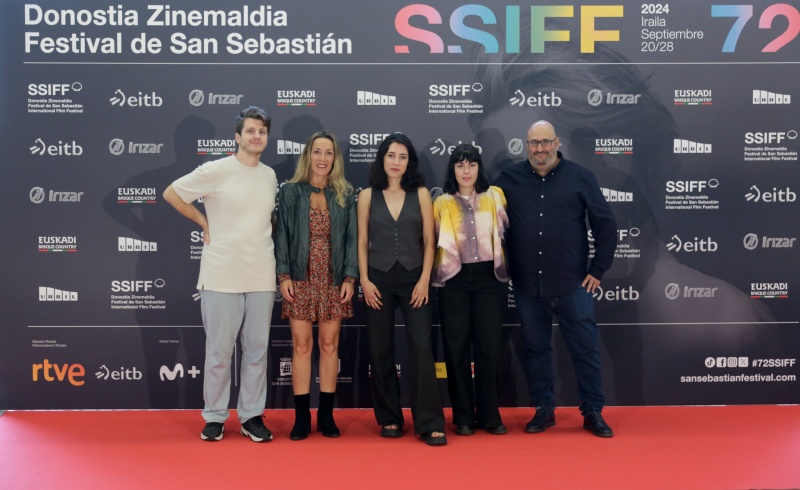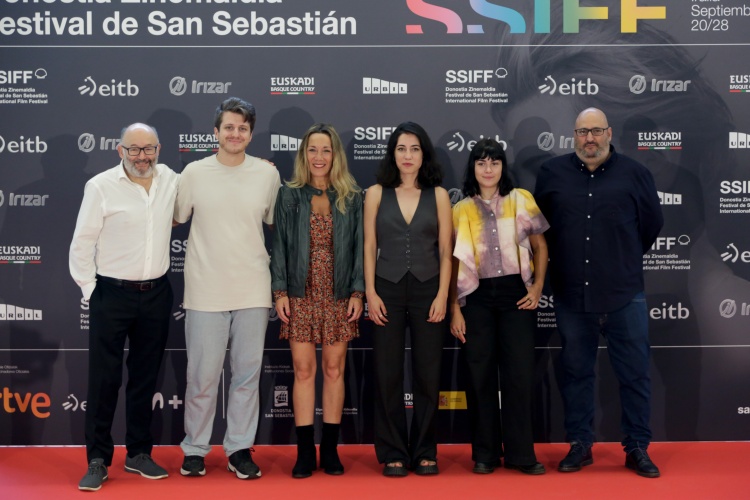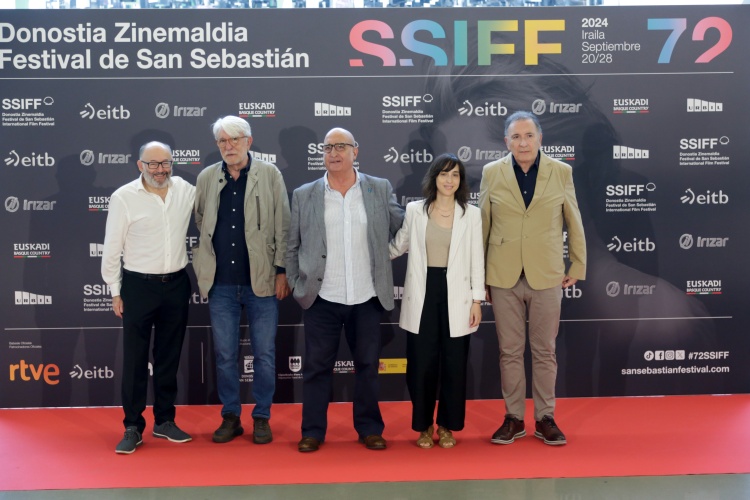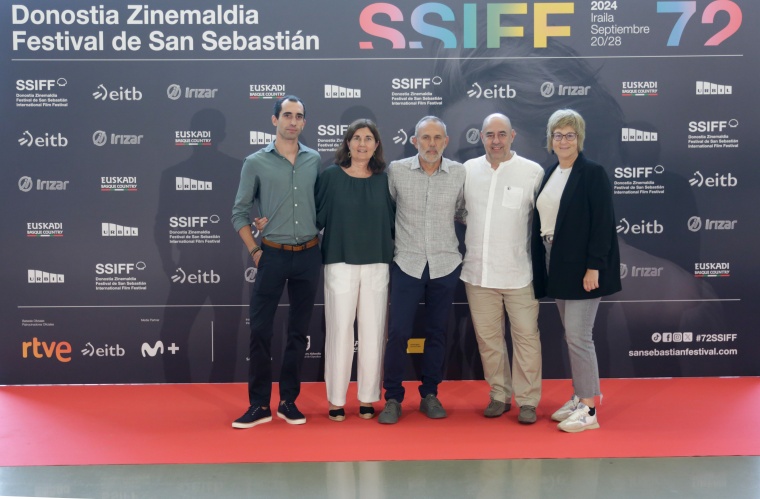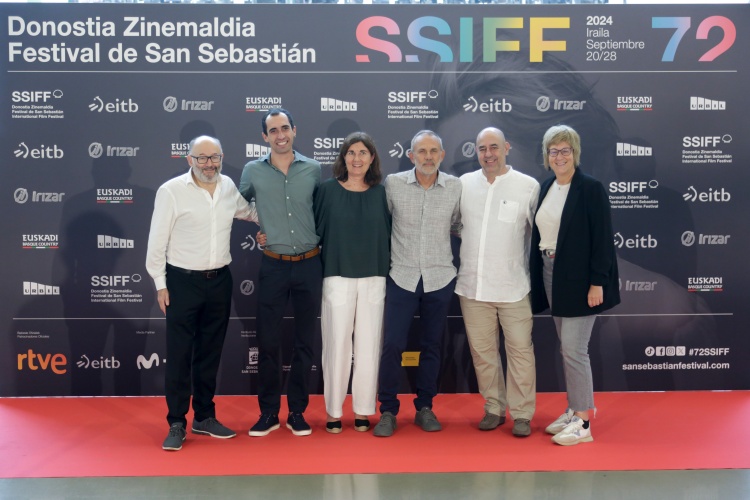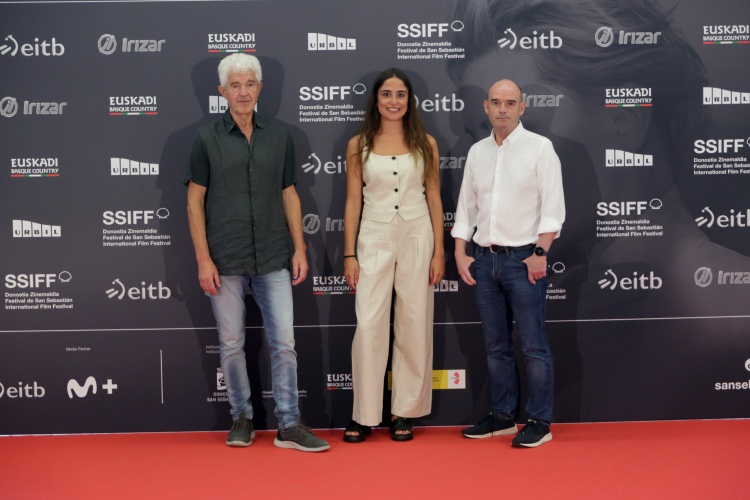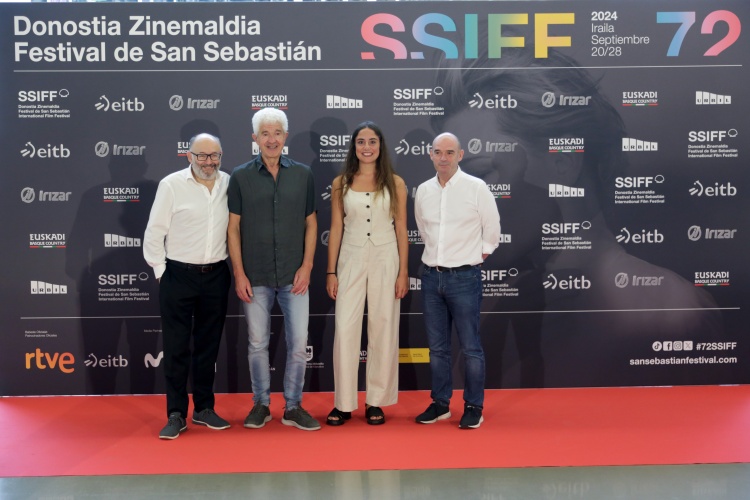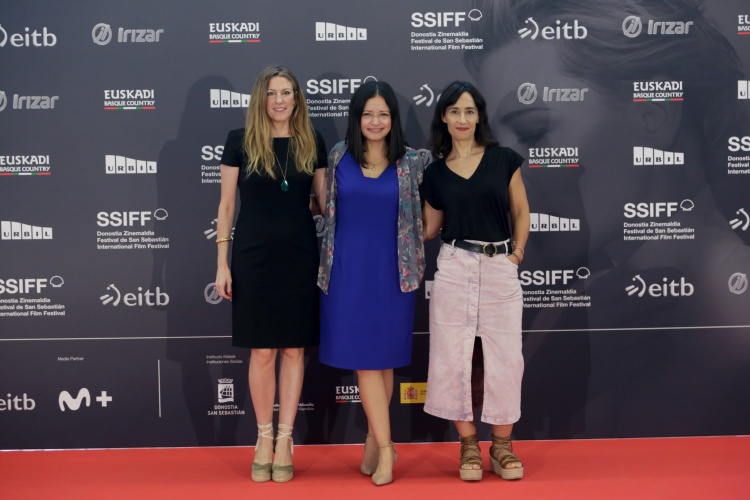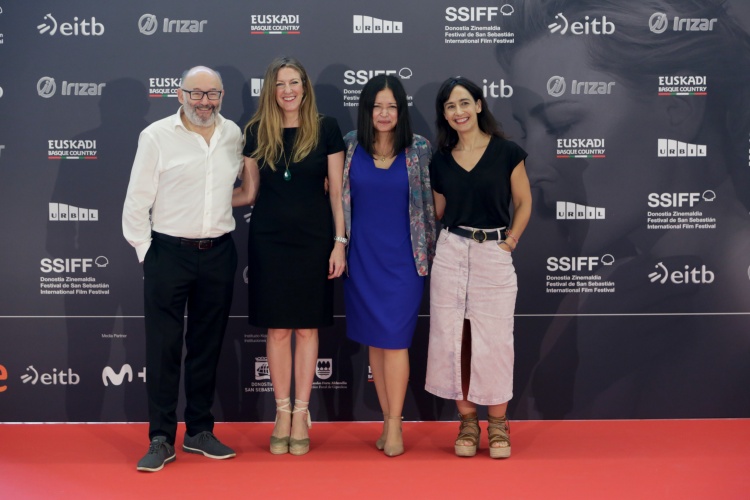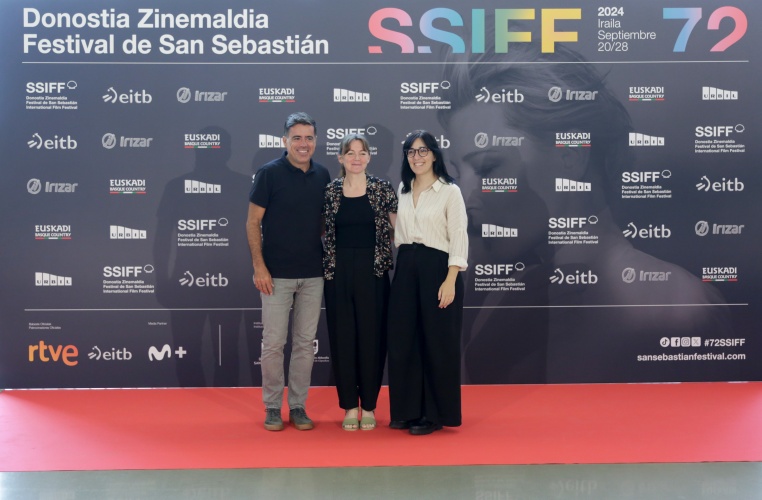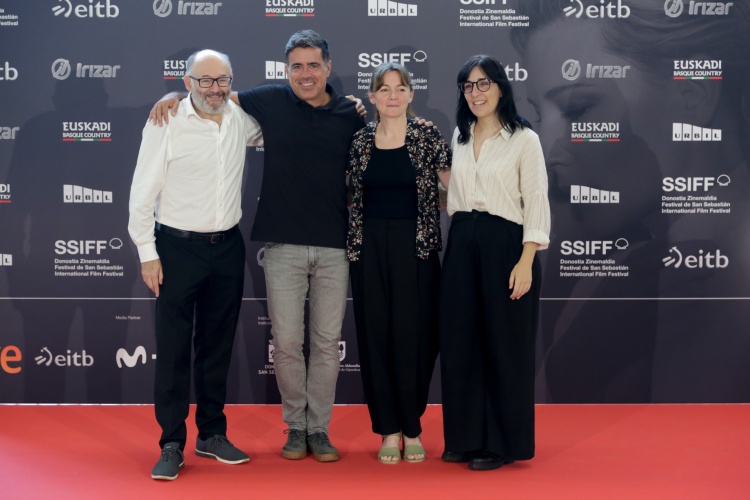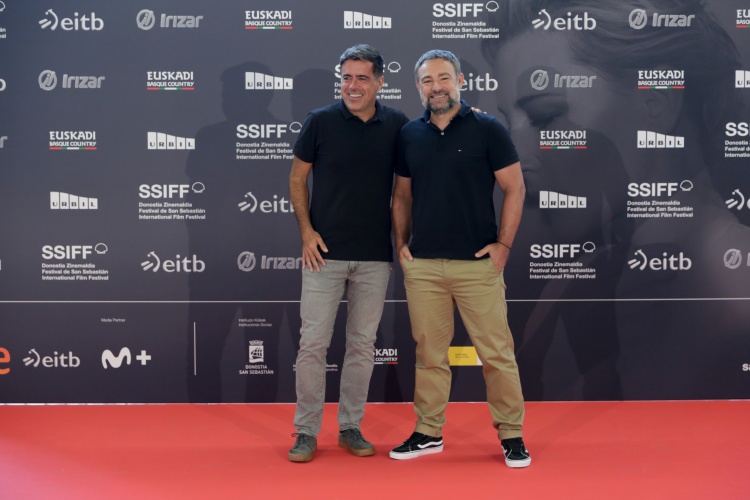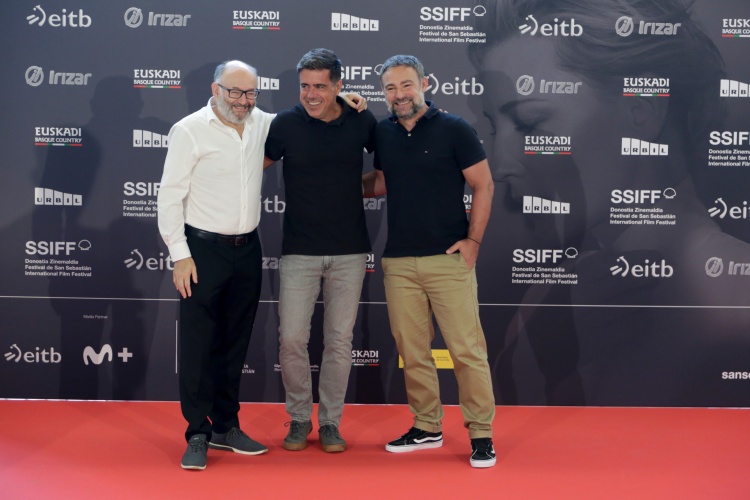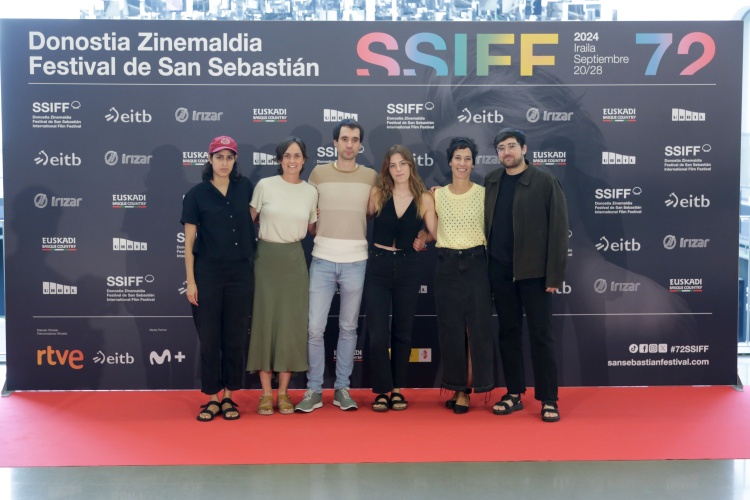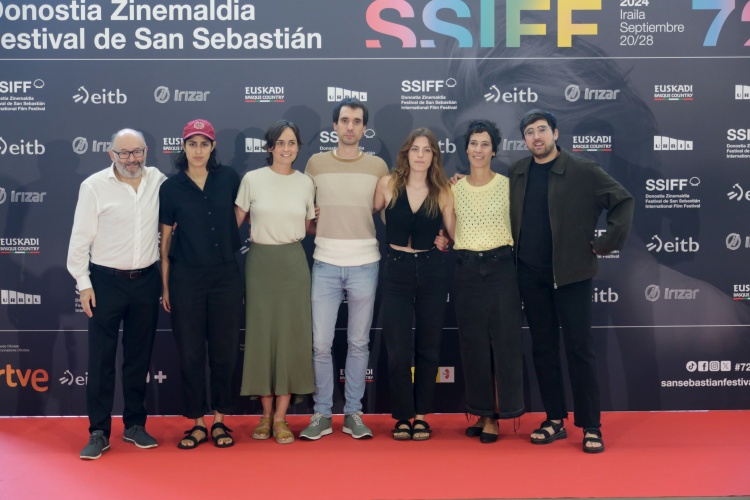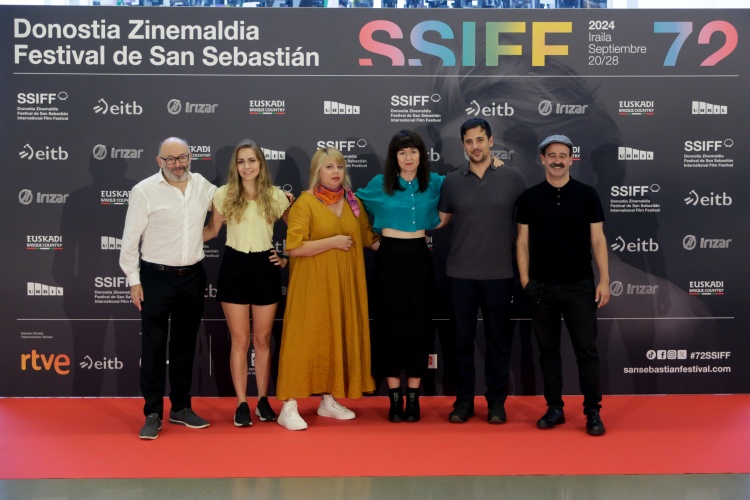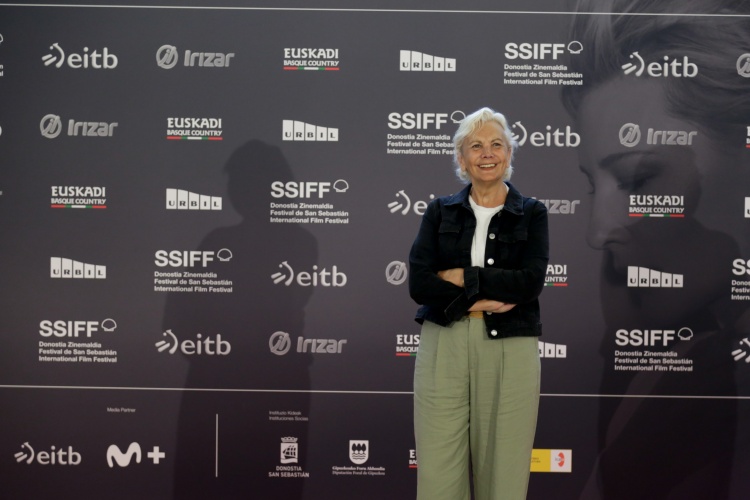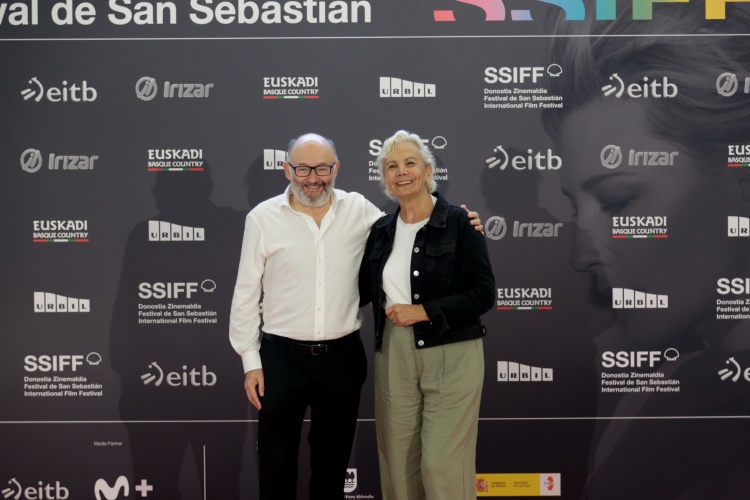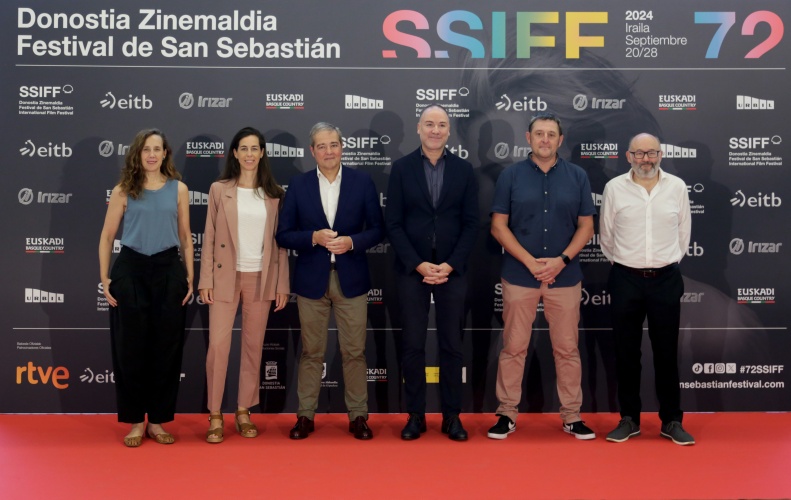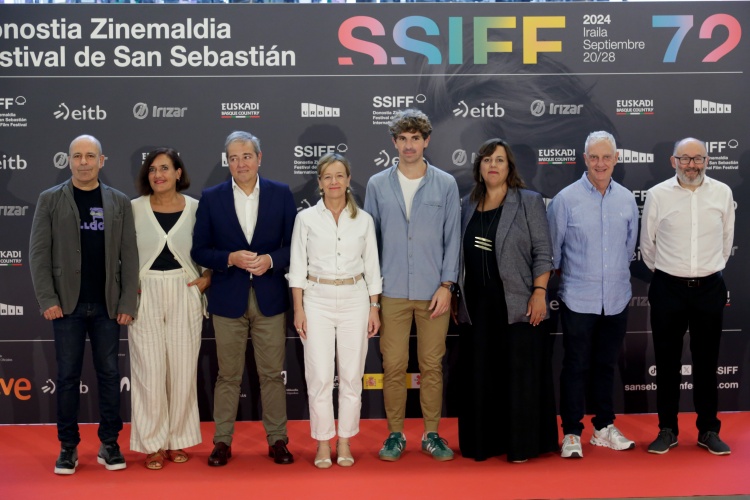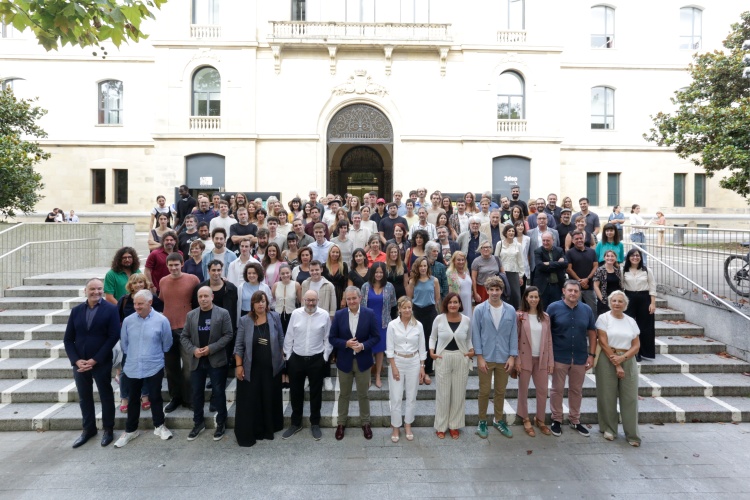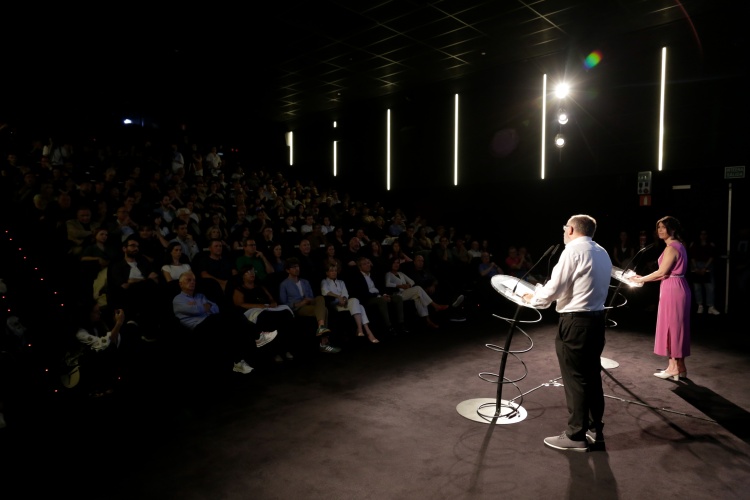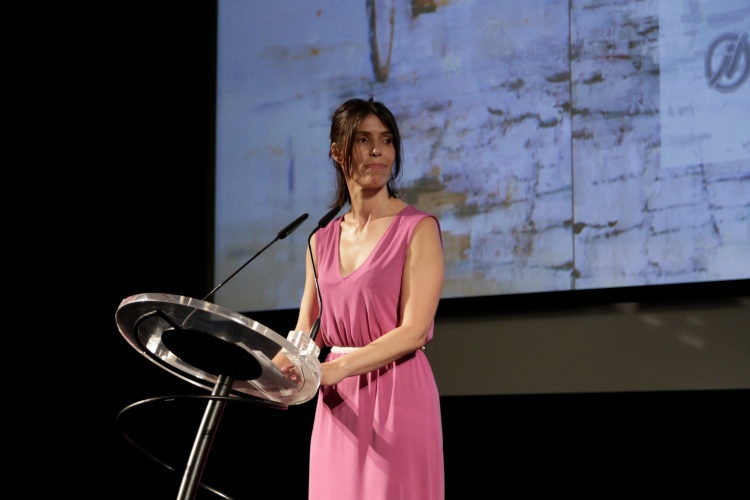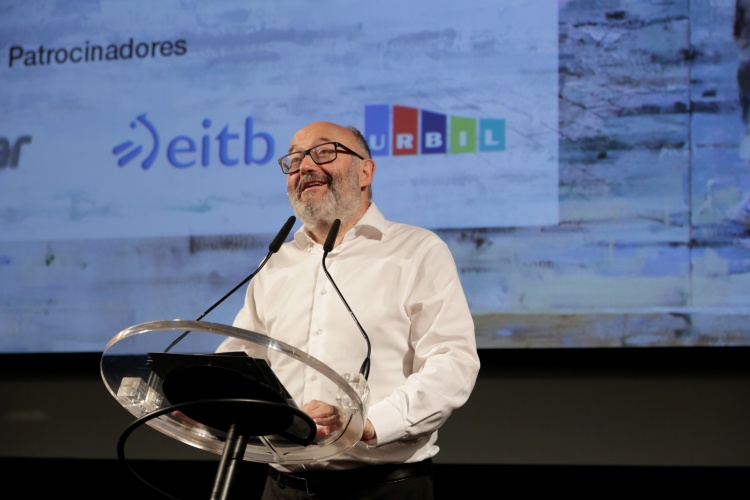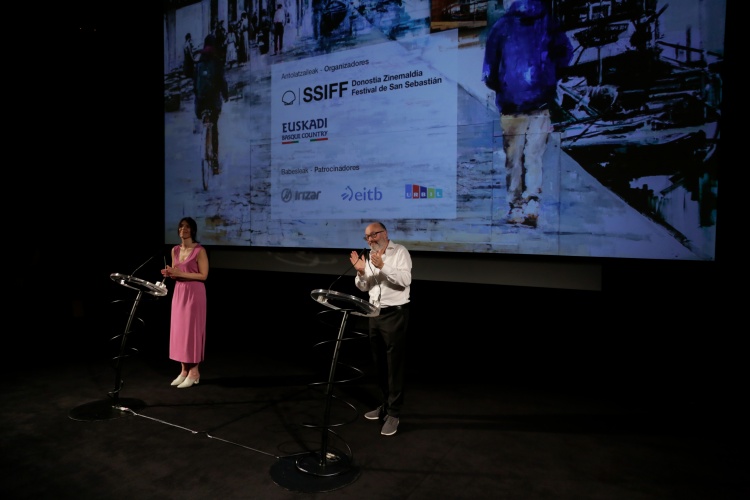20 films with Basque production have been selected for the Official Selection, New Directors, Perlak, Zabaltegi-Tabakalera, Nest, Culinary Zinema, Zinemira, Made in Spain, the Velodrome, Movies for Kids and the EiTB Gala
The Zinemira Award goes to the career of actress Elena Irureta
A total of 20 titles – 15 features, 3 series and 2 shorts complete the Basque participation at the Festival’s 72nd edition, programmed in almost all its sections: Official Selection, New Directors, Perlak, Zabaltegi-Tabakalera, Nest, Culinary Zinema, Zinemira, Made in Spain, Velodrome, Movies for Kids and the EITB Gala.
Zinemira, the section specifically dedicated to Basque cinema, comes with nine proposals, eight of them world premieres, making them contenders for the Irizar Basque Film Award, coming with 20,000 euros for the producers of the film. Zinemira, organised by the San Sebastian Festival and the Basque Government Department of Culture, is a section sponsored by Irizar, EiTB and Urbil, and enjoys the collaboration of the Filmoteca Vasca, the EPE-IBAIA producers’ association and Zineuskadi.
Raúl de la Fuente (Pamplona, 1974) will open the section with the non-fiction Los Williams / The Williams, about the Athletic Club de Bilbao’s sibling players and their family background. De la Fuente won the Audience Award with Un día más con vida / Another Day of Life (Perlak, 2018), premiered as a special screening in the Cannes Official Selection, also winner of the Goya and European Film Academy Awards for Best Animated Feature Film.
The feature debut from the artist Carmen Chaplin, Chaplin | Spirit of The Tramp, will close the section. Charlie Chaplin's family embarks on a revealing journey into the Gypsy heritage that inspired the creation of his infamous and beloved character of The Tramp.
Arantxa Aguirre (Madrid, 1965), author of prizewinning documentaries including Dancing Beethoven (2016), directs Ciento volando, a non-fiction narrated by the actress Jone Laspiur on the work of the sculptor from San Sebastian, Eduardo Chillida, who would have celebrated his 100th birthday in 2024.
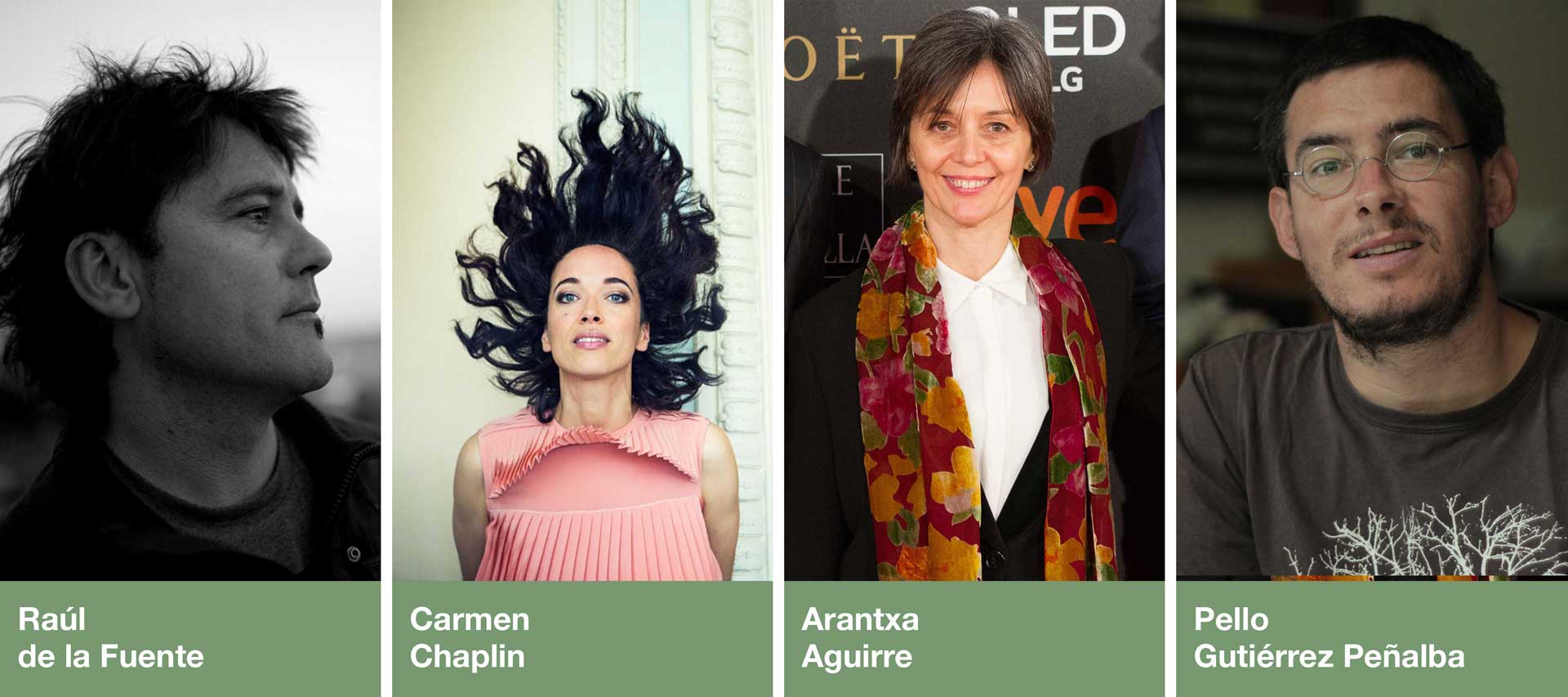
Erreplika / Replica is the second feature film, and the first solo-directed, from Pello Gutiérrez (San Sebastian, 1979), in which he reflects, based on the disappearance of a sculpture of Our Lady of Zikuñaga in the 13th century and the death of his father, the filmmaker Juanmi Gutiérrez, on absences and how we create images in order, perhaps to fill these spaces.
Ernesto del Río (Bilbao, 1954), until 2017 director of ZINEBI, the Bilbao Documentary and Short Film Festival, has completed his sixth feature film, Ese mundo que no te da nada / That World That Gives You Nothing, in which he portrays the on-off relationship between a couple who meet in Bilbao and separate in Havana.
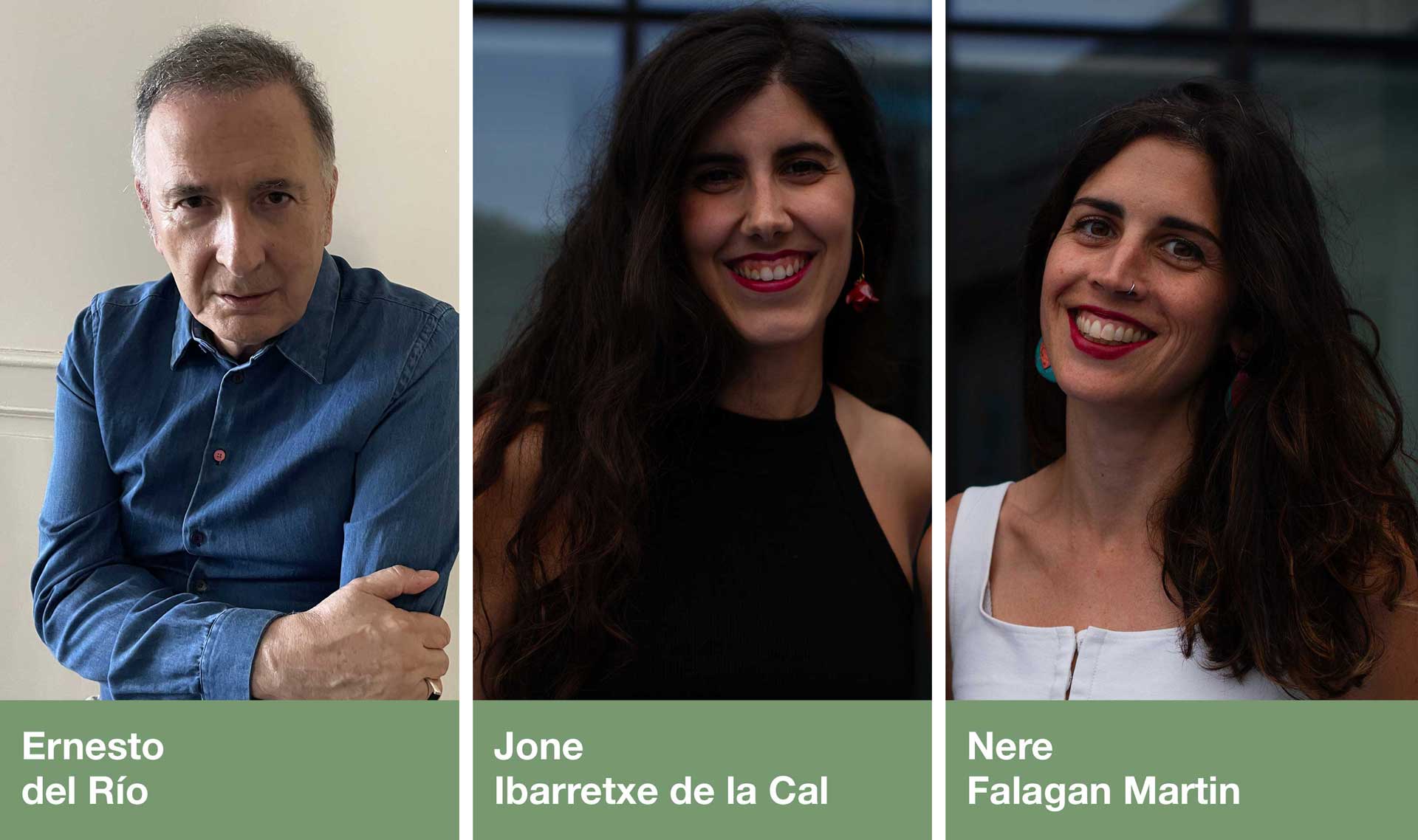
Jone Ibarretxe de la Cal (Barakaldo, 1990) joins Nere Falagan Martin (Barakaldo, 1991) on her debut movie exploring the light and shadows of the Ibarretxe brothers – her father Josemi and her uncles. Esto no es Hollywood (La historia inacabada de los hermanos Ibarretxe) / This Is Not Hollywood (The Unfinished Story of The Ibarretxe Brothers) interviews actors and moviemakers who accompanied them to portray these three pioneers of the Basque film world.

Miguel Alba Rico (Madrid, 1967), Nino Fontán (Madrid, 1969) and Itziar Bernaola (Bilbao, 1970) make their cinematic debut with the documentary Los poderes de Lolo about the mother of the former, Lolo Rico, creator of La bola de cristal / The Crystal Ball, coinciding with the 40th anniversary of the iconic TV show.
Zortzitik infinitura, the directorial debut from Naia Laka Arrizubieta (Ispaster, 1990), follows the history of Basque cinema set around the career of Benito Ansola, founder of the Lekeitio Euskal Zine Bilera, and in the company of writer Miren Agur Meabe.
Completing the section is a screening out of competition, Indarkeriaren oi(h)artzunak / Let it Know, winner of the Audience Grand Prix at the San Sebastian Human Rights Film Festival and of an Amnesty International special mention. Amaia Merino (San Sebastian, 1970), co-director of Asier eta biok / Asier and Me (2013, winner of the Irizar Basque Film Award included in the 2016 retrospective, The Act of Killing. Cinema and global violence) and Non dago Mikel / Where is Mikel? (Zinemira, 2020, recipient of a special mention), and Ander Iriarte (Oiartzun, 1986), author of Echevarriatik Echeverriara (2014) and Karpeta urdinak / Blue Files (Zinemira, 2022), follow the search for the truth by Tamara Muruetagoiena, whose family was kidnapped by ETA and whose father was tortured to death by the State.
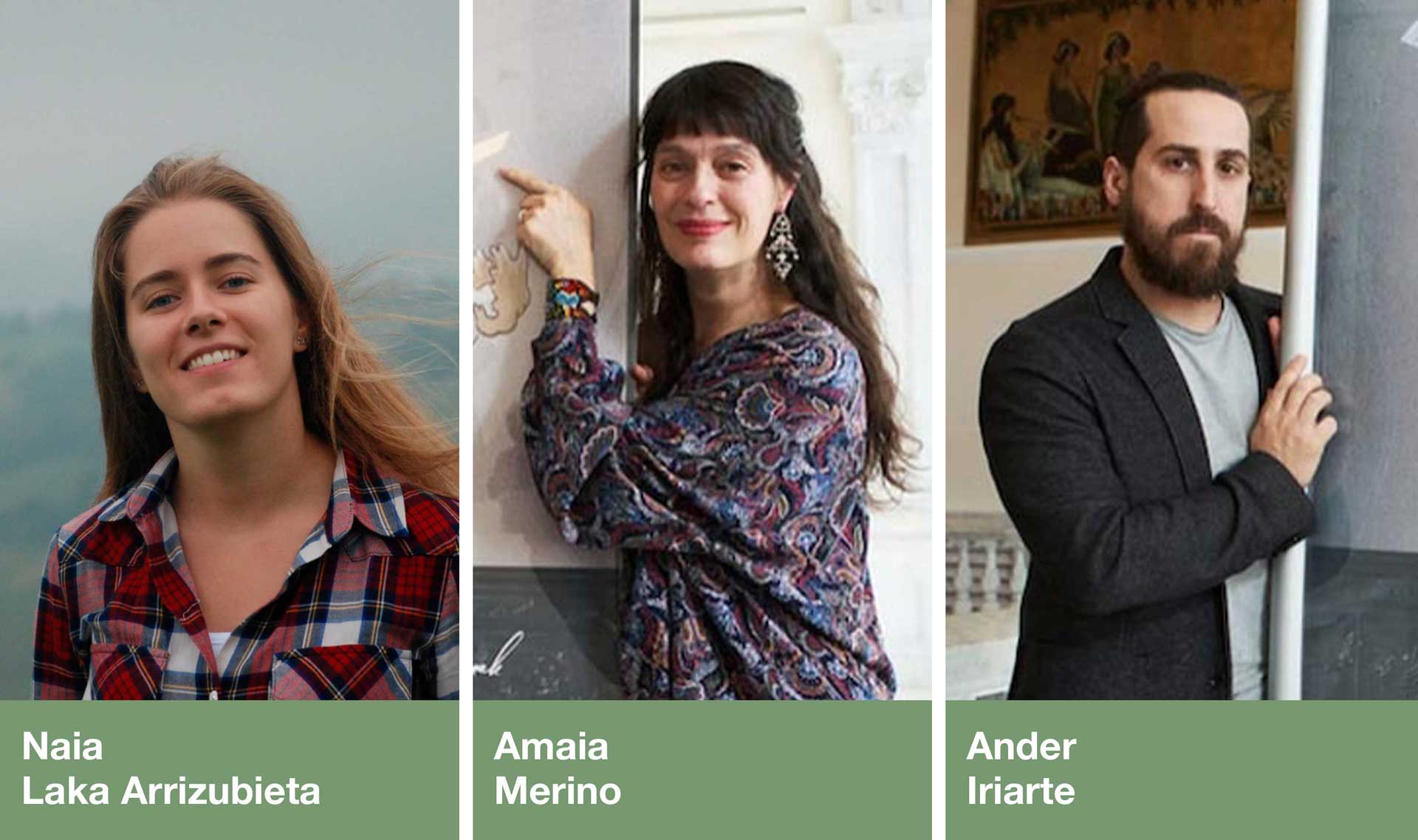
Bollain and Pérez-Sañudo, also to compete for the Irizar Award
Iciar Bollain (Madrid, 1967), who formerly won the Irizar Basque Film Award with Maixabel (2021), will once again compete with Soy Nevenka / I Am Nevenka, the true story of a councillor who pays a high price for reporting the sexual abuse perpetrated by the mayor, played by Urko Olazabal, programmed in the Official Selection. Someone else to have experienced winning the Irizar Award is David Pérez Sañudo (Bilbao, 1987), who bagged it with Ane / Ane is Missing (2020) and once again participates in the New Directors selection with Azken erromantikoak.
The latest works from Alauda Ruiz de Azua, Jon Garaño & Aitor Arregi, Izibene Oñederra, Galder Gaztelu-Urrutia and Andrea Jaurrieta
Other Basque productions will also screen at the Festival. In the Official Selection, the director of Cinco lobitos / Lullaby (Zinemira Closing Gala, 2022), Alauda Ruiz de Azúa (Barakaldo, 1978), will show Querer, narrating the story of a woman (Nagore Aranburu) who, after 30 years of marriage, leaves her husband and reports him for continued rape. Following its participation in the Orizzonti section of the Venice Mostra, Marco, directed by Jon Garaño (San Sebastian, 1974) and Aitor Arregi (Oñati, 1977) will close Perlak out of competition at the Velodrome. Moviemaker Izibene Oñederra (Azkoitia, 1979) will show the animated short film selected for Kimuak and screened at Annecy Etorriko da (Eta zure begiak izango ditu) / When it Comes (It Will Have Your Eyes) in Zabaltegi-Tabakalera. Julen Etxeberria (Getxo, 1974), a former student at the Elías Querejeta Zine Eskola, will compete in Nest with his short film El tercer paisaje / The Third Landscape. El hoyo 2 / The Platform 2, sequel of the hit movie by Galder Gaztelu-Urrutia (Abadiño, 1974), will close the Culinary Zinema section out of competition. In addition, the Velodrome will provide the venue for the premiere of the eleventh season of EITB’s teen musical series Go!azen, directed by Itziar Gómez (Errenteria, 1964). Made in Spain will screen Nina by Andrea Jaurrieta (Pamplona, 1986), whose protagonist (Patricia López Arnaiz) returns to her hometown to take revenge on an author receiving a tribute. Nina received the Critics’ Award at the Malaga Festival. The Movies for Kids section will screen the animated film Robotia, directed by the Argentinians Diego Cagide and Diego Lucero, which has Basque production. The EiTB Gala will include the second season of Itsatsita a musical series for Instagram directed by Jon Rodríguez (Errenteria, 1991).
ZINEMIRA
Section dedicated to Basque cinema organised by the San Sebastian Festival and the Basque Government Department of Culture, with the sponsorship of Irizar, EiTB and Urbil, and the collaboration of the Filmoteca Vasca, EPE-IBAIA and Zineuskadi.
Many migrants live in search of a mirror in which to recognize themselves; they are not from here, but they are not from there either. Los Williams / The Williams, a feature-length documentary, familiar and sporting, told in first-person by Iñaki and Nico Williams. Two brothers, footballers, Basques and "beltzas" or black, of Ghanaian descent, reveal their incredible tale across the two most crucial years of their lives. From their historic participation in the Qatar World Cup with two different selections, to the long-awaited victory of the Athletic Club in the Copa del Rey after 40 years, and Nico's triumph at the European Championship. Two international stars, face to face with their past and their future, through the conflicts that have marked their lives: racism, identity, frustration, ambition, and success.
Featuring exclusive interviews and unprecedented access to the Chaplin estate, the film is a revealing exploration of Chaplin’s Romany heritage constructed from intimate interviews, film extracts, home movies and contributions from renowned contemporary Roma artists.
Daybreak in summer. A young girl from San Sebastian makes her way to the Peine del Viento (Wind Comb). She remembers the old sculptor Eduardo Chillida, who had been coming here since he was a boy. Today his three sculptures anchored to the rocks, in permanent conversation with the sea and the wind, have become a distinguishing feature of his city and of the whole Basque coast. At dawn, the young Jone asks herself about the sculptor and promises herself that she will go and find him.
"En 1979 Our Lady of Zikuñaga disappeared, leaving the locals bereft of their iconic image. An empty space in a niche. A collective void. This is a film about spaces. My father, Juanmi Gutiérrez, a filmmaker, died some years ago. Now, from the distance, I return to his films in an exercise of personal memory through an image, or rather, through its absence. Can the lack of an image be as powerful as its presence? And if so, what should we do with that void?" (Pello Gutiérrez Peñalba)
Bernardo and Esperanza met in Bilbao in 1978, when both were students at university in the midst of the turbulent political circumstances of the time. They had an on-off relationship - brimming with passionate encounters and inexplicable misunderstandings - until in 2001, during a trip to Havana to visit the aunt and cousin she had never met, the two forever went their different ways.
When her father and uncles die, Jone (Josemi's daughter) decides to make a documentary about the Ibarretxe Brothers. Pioneers in the Basque audiovisual sector, creative, cheeky and always up to something, they were devoted to cinema made in Euskadi long before it was a reality. Analysing their films and talking to people who accompanied them (Stephen Fry, Echanove, Ramon Barea, Santiago Segura, José Luis Rebordinos), Jone gradually comes to realise that their cinema is nothing more than a faithful reflection of their own selves.
Forty years after ETA kidnapped her family and the State tortured and murdered her father, Tamara Muruetagoiena throws herself into the indefatigable search for the truth and justice, while personally telling us about her family tragedy: the revolutionary tax, the fact of her 17-day kidnapping by ETA, her family's falling apart, the State harassment and the political pressure they suffered, the trial, the arrest of her father and mother, the torture endured, the murder... but also her own path, that of knowing the truth and recognising it and of the use of dialogue as the principal means of resolving conflicts.
Coinciding with the 40th anniversary of the birth of the iconic TV show La bola de cristal / The Crystal Ball, the documentary focuses on its creator, a woman ahead of her time, modern and courageous. Los poderes de Lolo looks at the impressions of her children, friends and work colleagues. Javier Gurruchaga, Kiko Veneno, Loquillo and Anabel Alonso, among others, remember what it was like to work in La bola with Lolo Rico, a woman who rebelled against the traditional role assigned to her by society.
By means of a journey through the life of the filmmaker Benito Ansola and with the writer Miren Agur Meabe by our side, we will travel through the history of Basque cinema, from the germ of both Basque cinema and of films made in the Basque language until their present-day efflorescence. But Miren Agur Meabe won't be alone. On this voyage, we will have magnificent assistants. Myriad eminent Basque filmmakers who have played a lead part in and witnessed its evolution will tell us its story.
EITB GALA
A car, music, two divorced 40-somethings bonking non-stop... What could possibly go wrong? Everything! Xabier and Miren are stuck fast to one another, turning a night that was shaping up to be great fun into a hellish experience for the couple, especially when their respective daughters arrive at the hospital.
OFFICIAL SELECTION
In the year 2000, Nevenka Fernández, the Finance Councillor of Ponferrada Town Council, is relentlessly hounded by the mayor, a man used to getting his way both politically and personally. Nevenka decides to report him, knowing that it will cost her dearly. A story based on true events turning its lead character into a forerunner of the #metoo movement due to being the first person to take an influential politician to court for sexual and labour harassment.
After 30 years of marriage and two children, Miren leaves the family home and reports her husband for continued rape. This serious accusation forces the children to choose between believing their mother or supporting a father who claims his innocence. A family odyssey running parallel to a legal process with the same goal: to discover the truth. 4-episode miniseries.
NEW DIRECTORS
Irune, a woman who keeps to herself, lacks self confidence and has hypochondriac tendencies, works in a paper mill on the edge of an industrial town. Her life is limited to a few acquaintances: her work colleagues, a neighbour with whom she shares something of a friendship and a railway company employee she consults on the times of trains she never takes. Her fragile balance will fall to pieces when she feels a lump in her breast, coinciding with a work conflict in which she is personally involved. Suddenly her life takes an expected turn, offering her the chance, perhaps without knowing it, she had always been waiting for.
ZABALTEGI-TABAKALERA
A small community brought to its knees by an environmental crisis adapts as it can to the new reality. The more privileged inhabitants enjoy a hedonistic life based on the notion of carpe diem, while the others have no choice but to get by as they can. What does the future hold? If there’s nothing else, can anything save us?
PERLAK
Based on true events, Marco explores the story of a concentration camp deportee who never existed. Enric Marco, an immensely charismatic man who, for years, was able to maintain, before public opinion and his own family, a deeply complex lie: that he had been a prisoner in a Nazi concentration camp. A man who rose to the presidency of the Spanish Association of Holocaust Victims, who became a prominent and admired figure for his supposed bravery and suffering. Until one day, a historian discovered that his survival story was, in fact, a complete lie.
NEST
El tercer paisaje / The Third Landscape is a film project that has as its protagonist the fungus that made the painted forest of Oma sick, the work that the Basque artist Agustín Ibarrola carried out in the 80s in the province of Bizkaia. This artwork belongs to the Land Art movement, which is mainly characterized by its ephemeral nature. Within this current, artists leave their works exhibited at the mercy of weather conditions and other elements alien to human will.
CULINARY ZINEMA
As a mysterious leader imposes his law in The Platform a new female inmate takes up arms in the battle against this controversial method of waging war against the brutal food system. But when eating from the wrong plate turns into a death sentence, just how far will you be willing to go to save your life?
MADE IN SPAIN
Nina decides to return to the coastal town where she grew up, with a gun in her bag and a purpose: to take revenge on Pedro, a famous author now receiving tribute from the town. The reconnection with the place of her birth, with her memories of the past and with Blas, a childhood friend, will make her wonder if revenge is her only option.
VELODROME
Although born as a TV movie, Go!azen is now in its 11th season. In each one the first musical series produced in the Basque Country brings a new summer in the Basakabi camp with covers of well-known songs from yesterday and today. This year's episodes will offer yet another season packed with fun and adventures.
MOVIES FOR KIDS
In a world inhabited by androids who live, dream and play, two robots are built in the same factory. With the same materials and at the same time. But years will go by before they can get together. Alex, who has an obvious manufacturing defect, is sent by his parents to a small school in the suburbs, whilst Bibi is raised in a conservative and enormously demanding environment, controlled by her parents and teachers. Alex and Bibi love football. He thinks he can't play. She's not allowed to. Yet they meet up with a group of marvellous and exciting robots at the football pitch. And when the chance arises to enter children's competition, Alex and his friends will do everything possible for Bibi to join in, showing everyone just what she's capable of to make her dream come true.
Zinemira Award: Elena Irureta
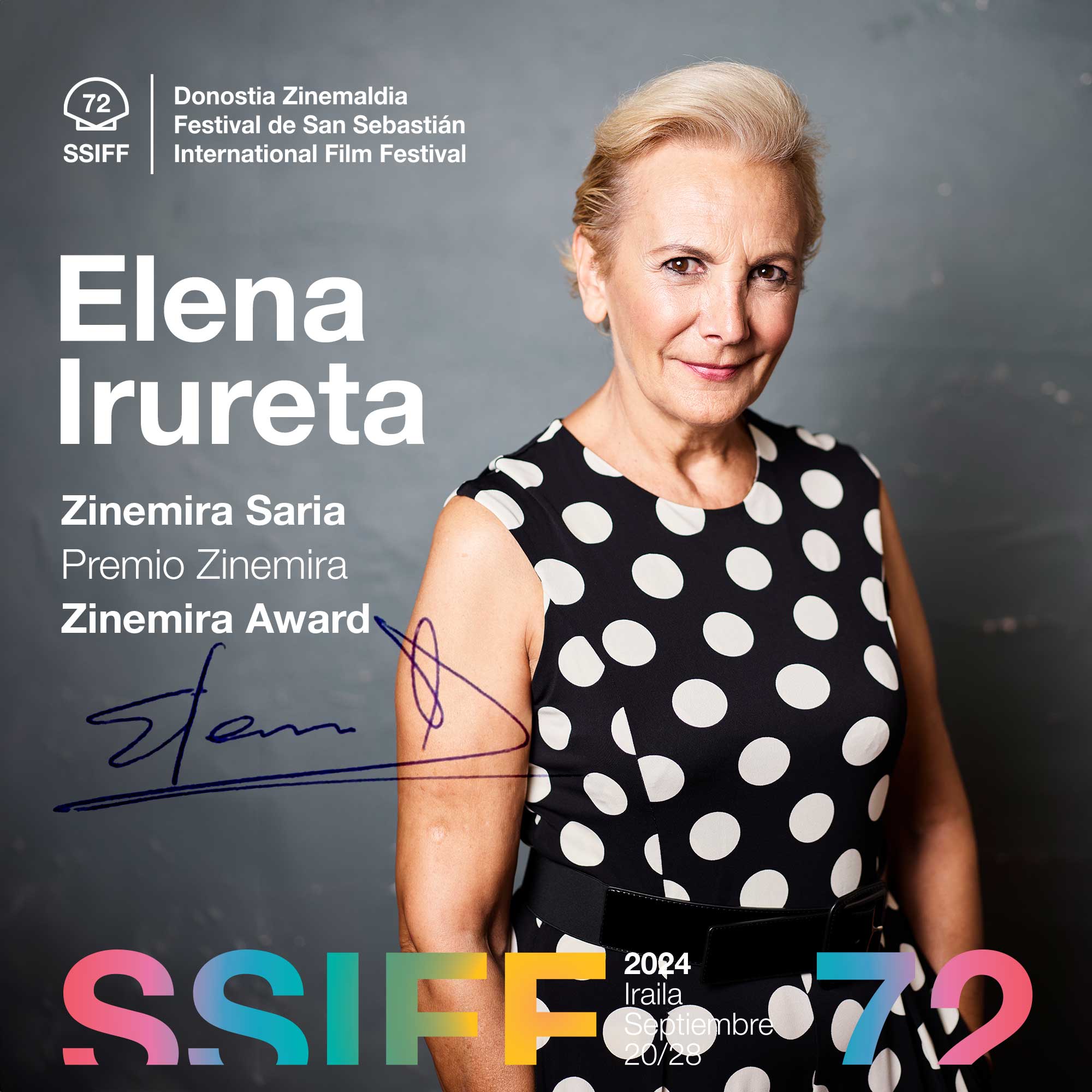
The Zinemira Award, presented at the Basque Cinema Gala, is an honorary accolade bestowed by the San Sebastian Festival and the EPE-IBAIA producers’ association to the career of an outstanding person, programme or institution of Basque cinema. Former recipients of this recognition of their careers are Imanol Uribe (2009), Álex Angulo (2010), Elías Querejeta (2011), Michel Gaztambide (2012), Juanba Berasategi (2013), Pedro Olea (2014), Karmele Soler (2015), Ramón Barea (2016), Julia Juaniz (2017), Ramón Agirre (2018), Jose María Txepe Lara (2019), Sara Bilbatua (2020), the Kimuak programme (2021), Txema Areizaga (2022) and Paco Sagarzazu (2023). This year, the Festival and the EPE-IBAIA producers’ association have decided to pay tribute to the actress Elena Irureta.
Actress, screenwriter and director Elena Irureta (Zumaia, 1955) graduated with the first group of students to study at the Antzerti School of Dramatic Art in San Sebastian. Her earlier works were related to the theatre, to plays like Arlequino servidor de dos amos and Los Troyanas, and to the birth of ETB, the Basque public television network, in series including Bi eta bat and Jaun ta Jabe. Her longest stint on television, running for eleven seasons, from 1999 to 2009, was the series El comisario.
In the cinema she has worked on more than thirty films with moviemakers such as Juanma Bajo Ulloa (in La madre muerta / The Dead Mother and Airbag), Julio Medem (La ardilla roja / The Red Squirrel), Daniel Calparsoro (A ciegas), Ramon Barea in both full-length (Pecata minuta) and short films (Adiós, Toby, adiós) and on three occasions with Iciar Bollain: Hola, ¿estás sola? / Hi, Are You Alone?, Flores de otro mundo / Flowers From Another World and Te doy mis ojos / Take My Eyes. She has also appeared in some of the biggest movies filmed in the Basque language, such as Aupa Etxebeste!, Zorion Perfektua, Urte berri on, amona, Igelak and Agur Etxebeste! Her part as Bittori in the series Patria, created by Aitor Gabilondo, where she once again performed alongside her colleague in Bi eta bat, Ane Gabarain, bagged her the Platino, José María Forque and Feroz Awards.
Irureta is not only an actor. She has also made a foray into writing, such as in the play Ama, begira ezazu with Kontxu Odriozola, having also created and directed the television series Hau da A.U. and Beni eta Marini with Aizpea Goenaga.
Basque film season at Urbil |
Also this year, result of the collaboration between the San Sebastian Festival and Urbil, sponsor of the Zinemira section, the Festival will run a Basque season at the Cinesa Urbil cinemas. The programme comes with four Basque productions, all winners of the Irizar Award. All are equally among the most highly acclaimed recent Basque films by critics and audiences alike:
- La trinchera infinita / The Endless Trench (Aitor Arregi, Jon Garaño and Jose Mari Goenaga, 2019), winner of the Silver Shell for Best Director and of the Jury Prize for Best Screenplay at the San Sebastian Festival, of two Goyas and one European Film Academy Award (on Friday 20th and Saturday 21st). The screening on the 20th will be introduced by the directors Joxe Mari Goenaga and Aitor Arregi (19:30). Language: original Spanish version.
- Maixabel (Iciar Bollain, 2021), winner of four Goya awards (Sunday 22nd, Monday 23rd and Tuesday 24th). Languages: Original Spanish and Basque with Spanish and Basque subtitles.
- Ane (David Pérez Sañudo, 2020), winner of four Goyas (Wednesday 25th and Thursday 26th). Language: Original Basque with Spanish subtitles.
- El sueño de la sultana / Sultana’s Dream (Isabel Herguera, 2023), winner of the Contrechamp Prize at the Annecy Animated Film Festival (Friday 27th and Saturday 28th). The screenings will be introduced by the producers Diego Herguera and Chelo Loureiro. Languages: Original version in Bengali, Spanish, Hindi, Italian, Basque and English with Spanish and Basque subtitles.
Basque, Spanish and English in all Official Selection Screenings in the K1 |
Like last year, all of the Official Selection films programmed at the Kursaal 1 can be enjoyed in the San Sebastian Festival’s three official languages: Basque, Spanish and English. Each film will therefore screen in its original version and will include subtitles in said languages as required.
Films spoken partially or totally in Basque |
- AZKEN ERROMANTIKOAK by David Pérez Sañudo (New Directors)
- CIENTO VOLANDO by Arantxa Aguirre (Zinemira)
- DINOSAURIOAK / DINOSAURS by Koldo Almandoz (Zinemira-Kimuak)
- ERREPLIKA / REPLICA by Pello Gutiérrez Peñalba (Zinemira)
- EXERGO by Jorge Moneo Quintana (Zinemira-Kimuak)
- GO!AZEN by Itziar Gomez (Velodrome)
- INDARKERIAREN OI(h)ARTZUNAK / LET IT KNOW by Amaia Merino and Ander Iriarte (Zinemira)
- ITSATSITA by Jon Rodríguez (EITB Gala)
- LOS WILLIAMS / THE WILLIAMS by Raul de la Fuente Calle (Opening Film, Zinemira)
- SENDA by Mikele Landa Eiguren (Ikusmira Berriak)
- ULYSSES by Hikaru Uwagawa (Zabaltegi-Tabakalera)
- UTLÄNDSK by Alba Lozano (Zinemira-Kimuak)
- ZORTZITIK INFINITURA by Naia Laka Arrizubieta (Zinemira)
Children's films dubbed into Basque |
The Movies for Kids section offers a selection of five films for an audience of children to be screened in Basque, thanks to the collaboration of Zineuskadi as part of the Zinema Euskaraz (Cinema in Basque) programme.
- ABENTURA ERRALDOIA / A GIANT ADVENTURE by Eduardo Schuldt
- BOO KWAI ETA MUSEOAREN LAPURRETA / CRAZY KWAI BOO: SANXINGDUI SPIRITED AWAY by Yunfei Wang
- DEEP SEA. SAKONTASUNERA BIDAIA BAT / DEEP SEA by Tian Xiaopeng
- DRAGOI-JAGOLEA (DRAGONKEEPER) / DRAGONKEEPER by Salvador Simó y Li Jianping
- PATRICK. HEROI TXIKIAK. BALENTRIA HANDIAK / BUTTERFLY TALE by Sophie Roy
- ROBOTIA by Diego Cagide and Diego Lucero
Furthermore, and thanks to the collaboration with the Donostia International Physics Center (DIPC) and the Filmoteca Vasca, the Festival will run every morning a screening for Gipuzkoa school children at the Velodrome of Amalie Næsby Fick’s film Alan giza antena / Little Allan - The Human Antenna, dubbed into Basque.
Films in other sections with Basque subtitles |
- BOUND IN HEAVEN by Xin Huo
- CONCLAVE by Edward Berger
- EL HOMBRE QUE AMABA LOS PLATOS VOLADORES by Diego Lerman
- EL LLANTO / THE WAILING by Pedro Martín-Calero
- EL LUGAR DE LA OTRA by Maite Alberdi
- EMMANUELLE by Audrey Diwan. Opening Film.
- HARD TRUTHS by Mike Leigh
- HEBI NO MICHI / SERPENT’S PATH by Kiyoshi Kurosawa
- LE DERNIER SOUFFLE / LAST BREATH by Costa-Gavras
- LOS DESTELLOS / GLIMMERS by Pilar Palomero
- MODI, THREE DAYS ON THE WING OF MADNESS by Johnny Depp (Out of competition)
- ON FALLING by Laura Carreira
- QUAND VIENT L’AUTOMNE / WHEN FALL IS COMING by François Ozon
- QUERER by Alauda Ruiz de Azúa (Out of competition. Series)
- SOY NEVENKA / I AM NEVENKA by Iciar Bollain
- TARDES DE SOLEDAD by Albert Serra
- THE END by Joshua Oppenheimer
- THE LAST SHOWGIRL by Gia Coppola
- LA HABITACIÓN DE AL LADO / THE ROOM NEXT DOOR by Pedro Almodóvar
- BRÛLE LE SANG / IN THE NAME OF BLOOD by Akaki Popkhadze
- GÜLIZAR / GULIZAR by Belkıs Bayrak
- HIVER À SOKCHO / WINTER IN SOKCHO by Koya Kamura (Closing Film)
- REGRETFULLY AT DAWN by Sivaroj Kongsakul
- STARS AND THE MOON by Yongkang Tang
- DORMIR DE OLHOS ABERTOS / SLEEP WITH YOUR EYES OPEN by Nele Wohlatz
- ALLE DIE DU BIST / EVERY YOU EVERY ME by Michael Fetter Nathansky
- APRILI / APRIL by Dea Kulumbegashvili
- DAHOMEY by Mati Diop (Opening Film)
- BOKU NO OHISAMA / MY SUNSHINE by Hiroshi Okuyama
- SUPER HAPPY FOREVER by Kohei Igarashi
- ULYSSES by Hikaru Uwagawa
- MEMOIR OF A SNAIL by Adam Elliot
- OH CANADA by Paul Schrader
- YEOHAENGJAUI PILYO / A TRAVELER’S NEEDS by Hong Sangsoo
- GRAND MAISON PARIS by Ayuko Tsukahara
- KITA NO SYOKUKEI / NORTHERN FOOD STORY by Tetsuya Uesugi
- SHELF LIFE by Ian Cheney
- IL CASO MORO by Giuseppe Ferrara
- IL GIORNO DELLA CIVETTA / THE DAY OF THE OWL by Damiano Damiani
- IL PREFETTO DI FERRO / THE IRON PREFECT by Pasquale Squitieri
- INDAGINE SU UN CITTADINO AL DI SOPRA DI OGNI SOSPETTO / INQUIRY OF A CITIZEN ABOVE SUSPICION by Elio Petri
- L’ULTIMA NOTTE DI AMORE / LAST NIGHT OF AMORE by Andrea Di Stefano
- LA POLIZIA RINGRAZIA / EXECUTION SQUAD by Steno (Stefano Vanzina)
Zinemira Kimuak (Exclusively for professionals) |
The Zinemira section will incluby the short film selection for the 2024 programme of Kimuak, an initiative of the Basque Government Bypartment of Culture and the Filmoteca Vasca, which has the vocation to disseminate the best Basque short films of the year. This year the Kimuak selection inclubys seven short films:
- DINOSAURIOAK / DINOSAURS by Koldo Almandoz
- ERROTATIBA / THE ROTARY PRESS by Iratxe Fresneda
- ETORRIKO DA (ETA ZURE BEGIAK IZANGO DITU) / WHEN IT COMES (IT WILL HAVE YOUR EYES) by Izibene Oñederra
- EXERGO by Jorge Moneo Quintana
- PATRIMONIO / PATRIMONY by Aitor Abio
- TODO LO CUBRE LA SAL / SALT COVERS ALL by Joana Moya
- UTLÄNDSK by Alba Lozano

